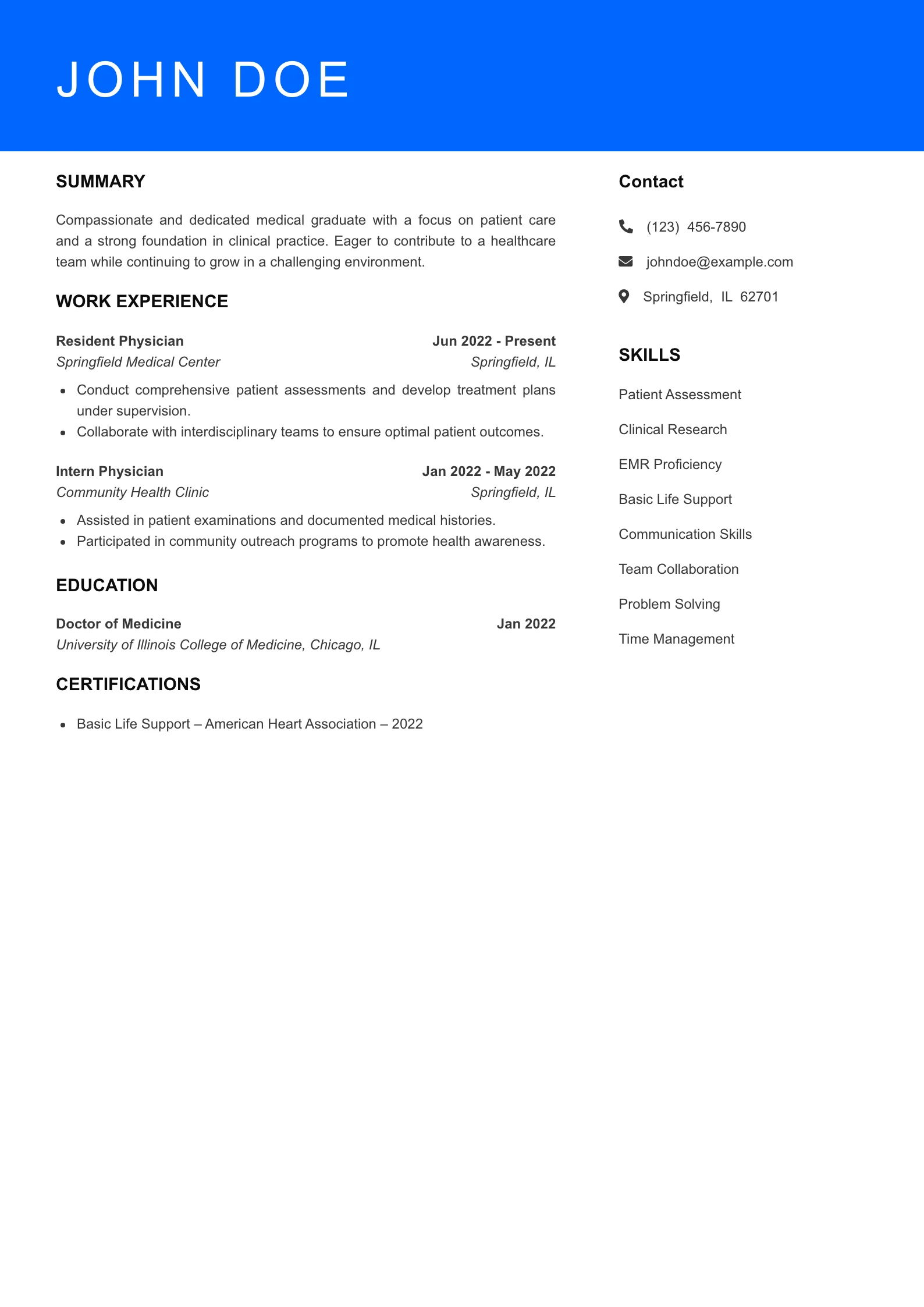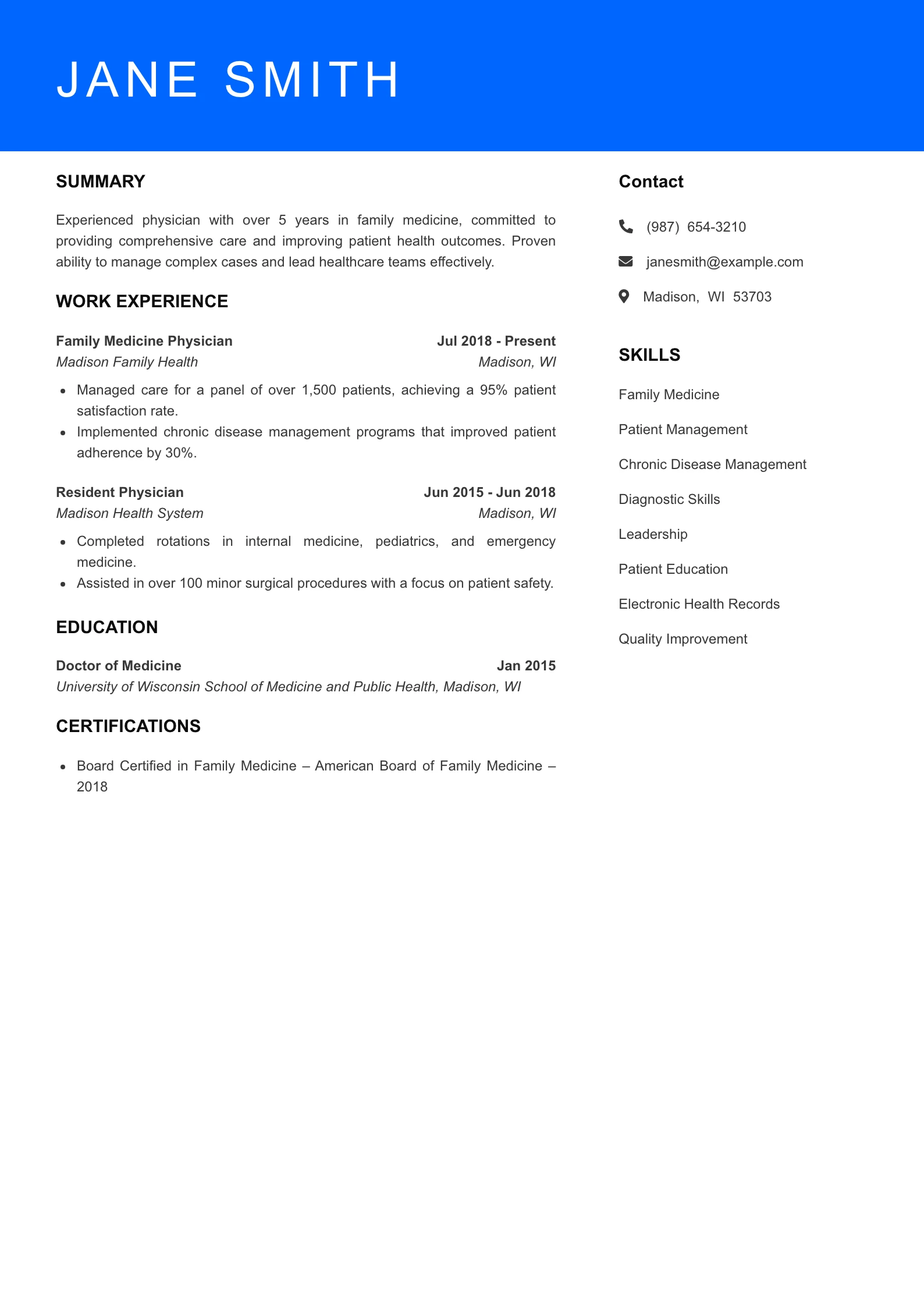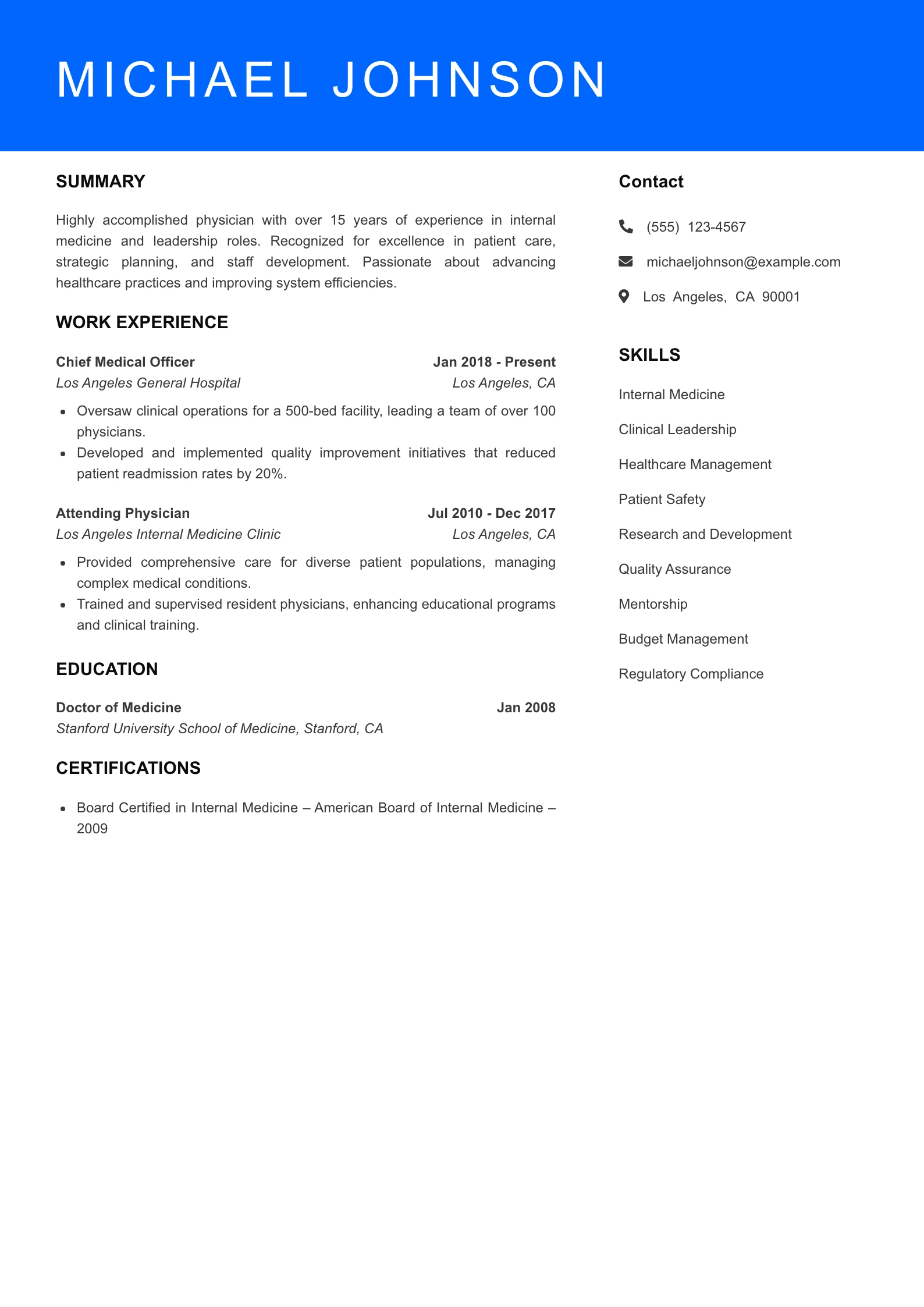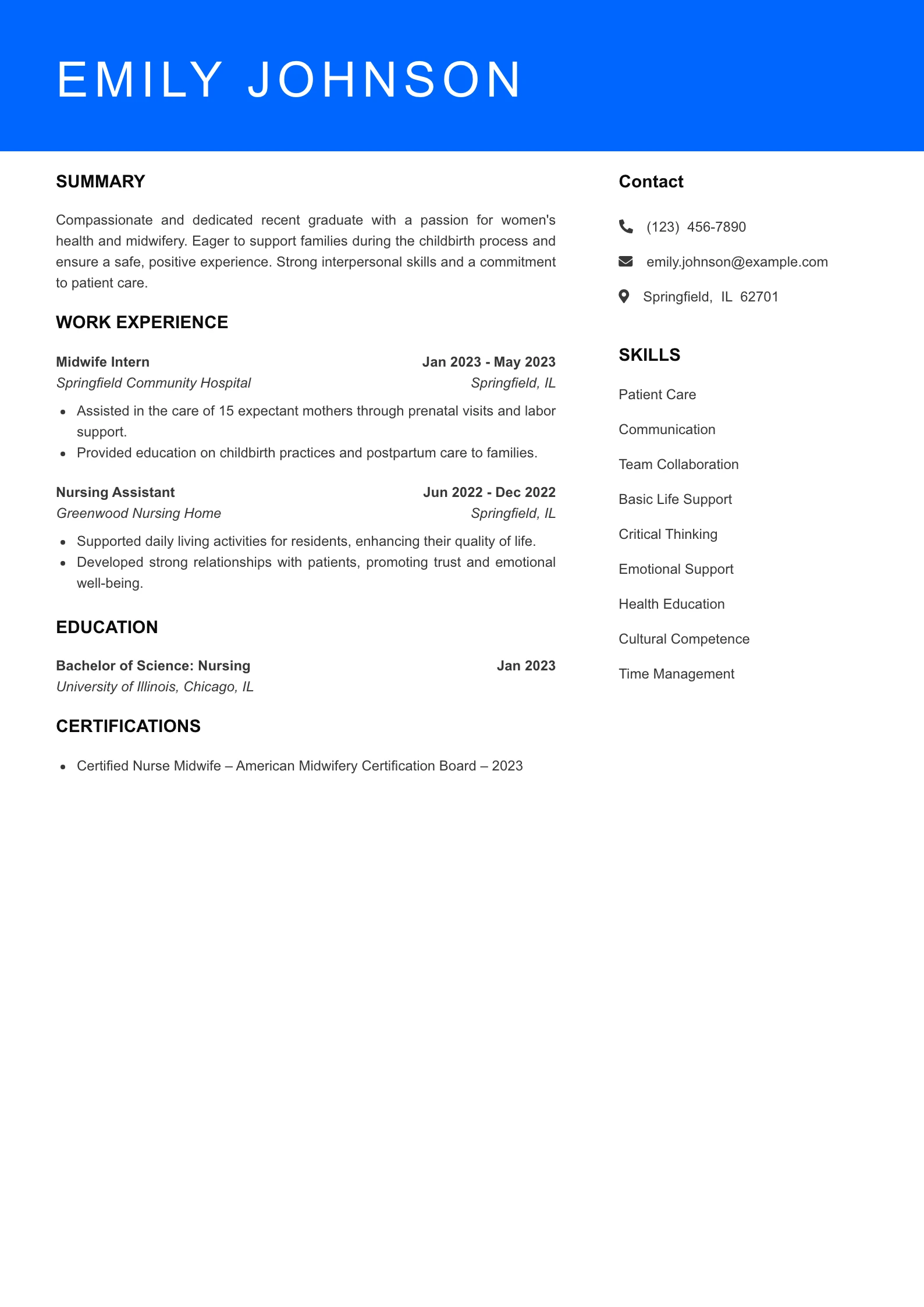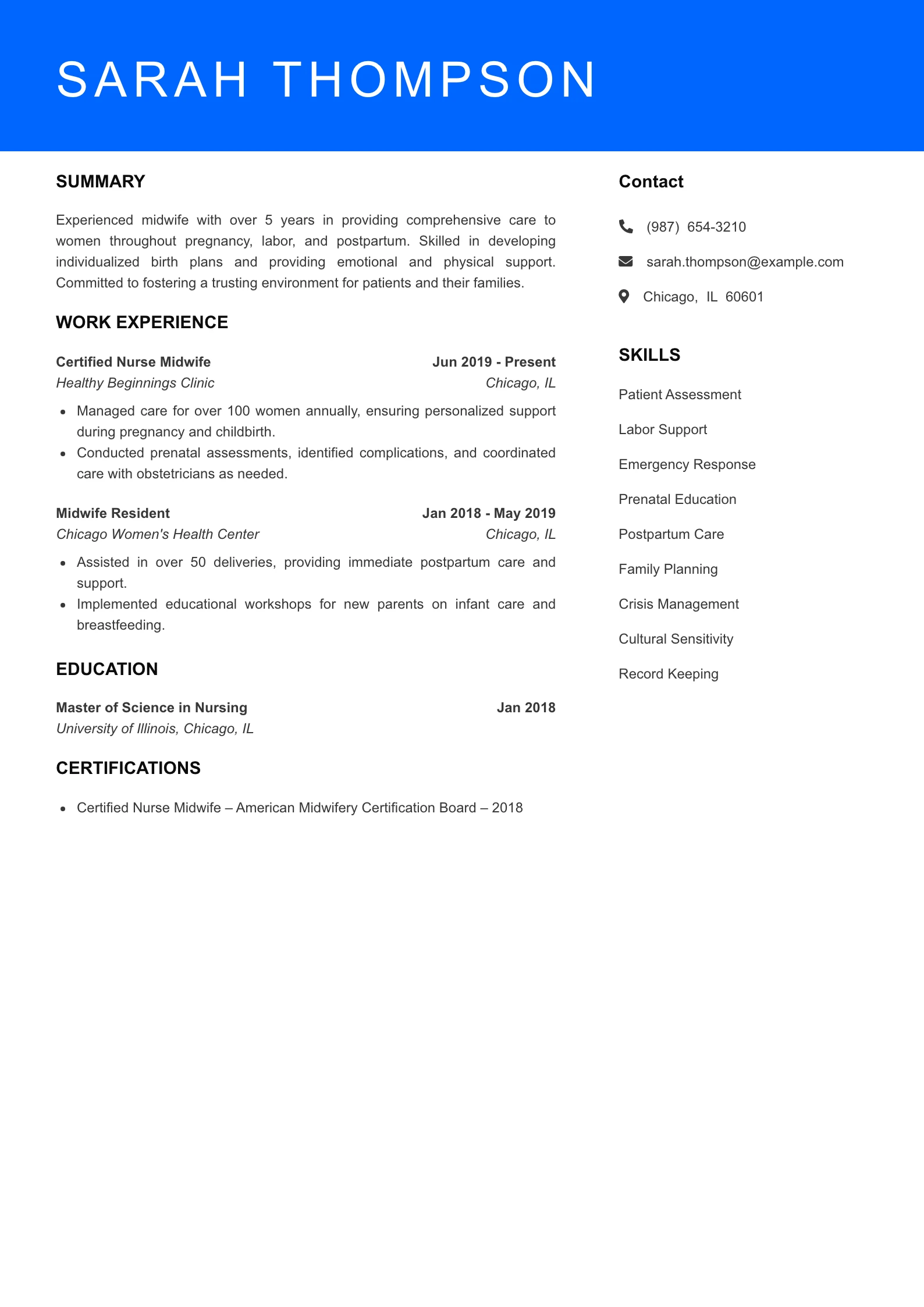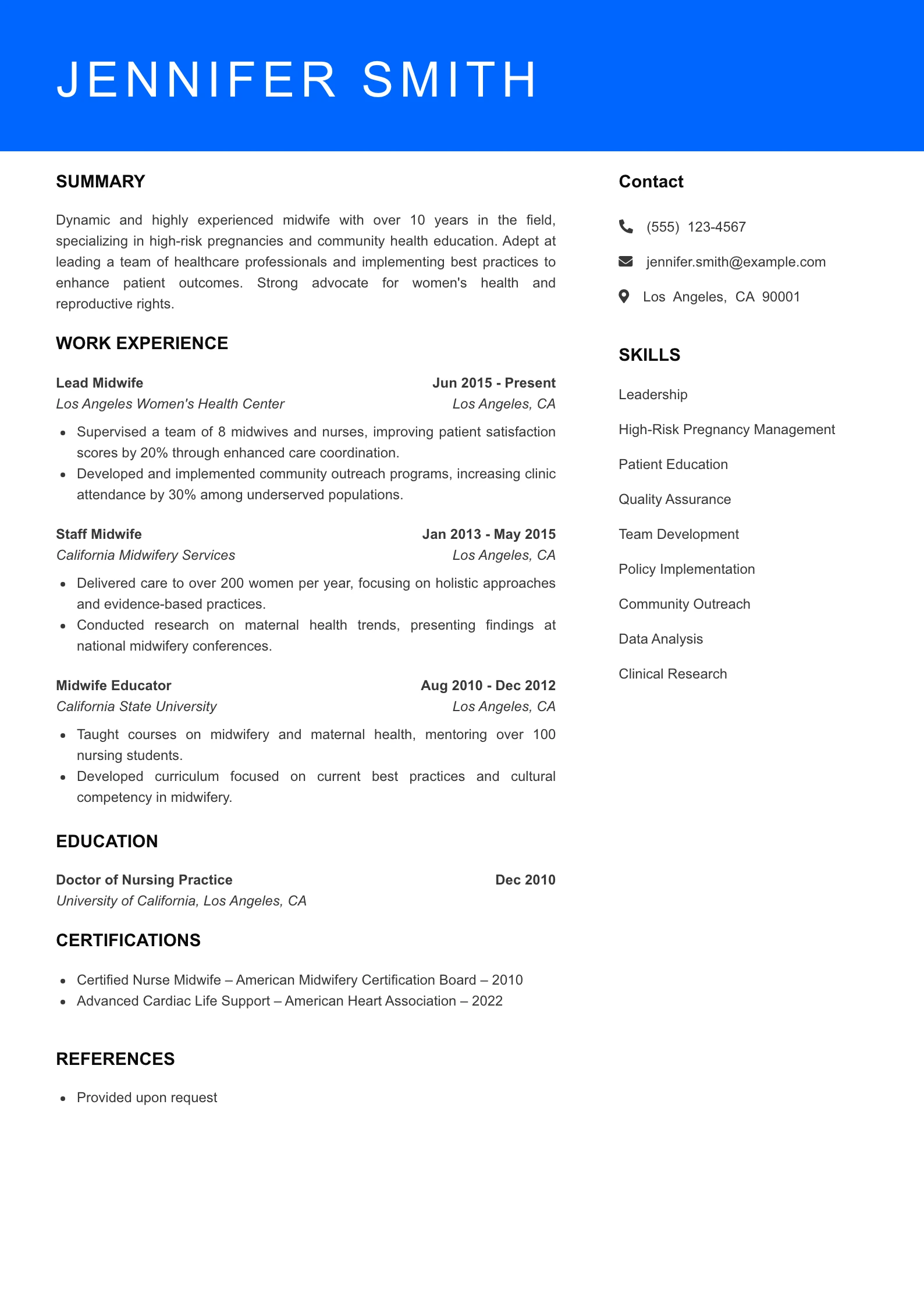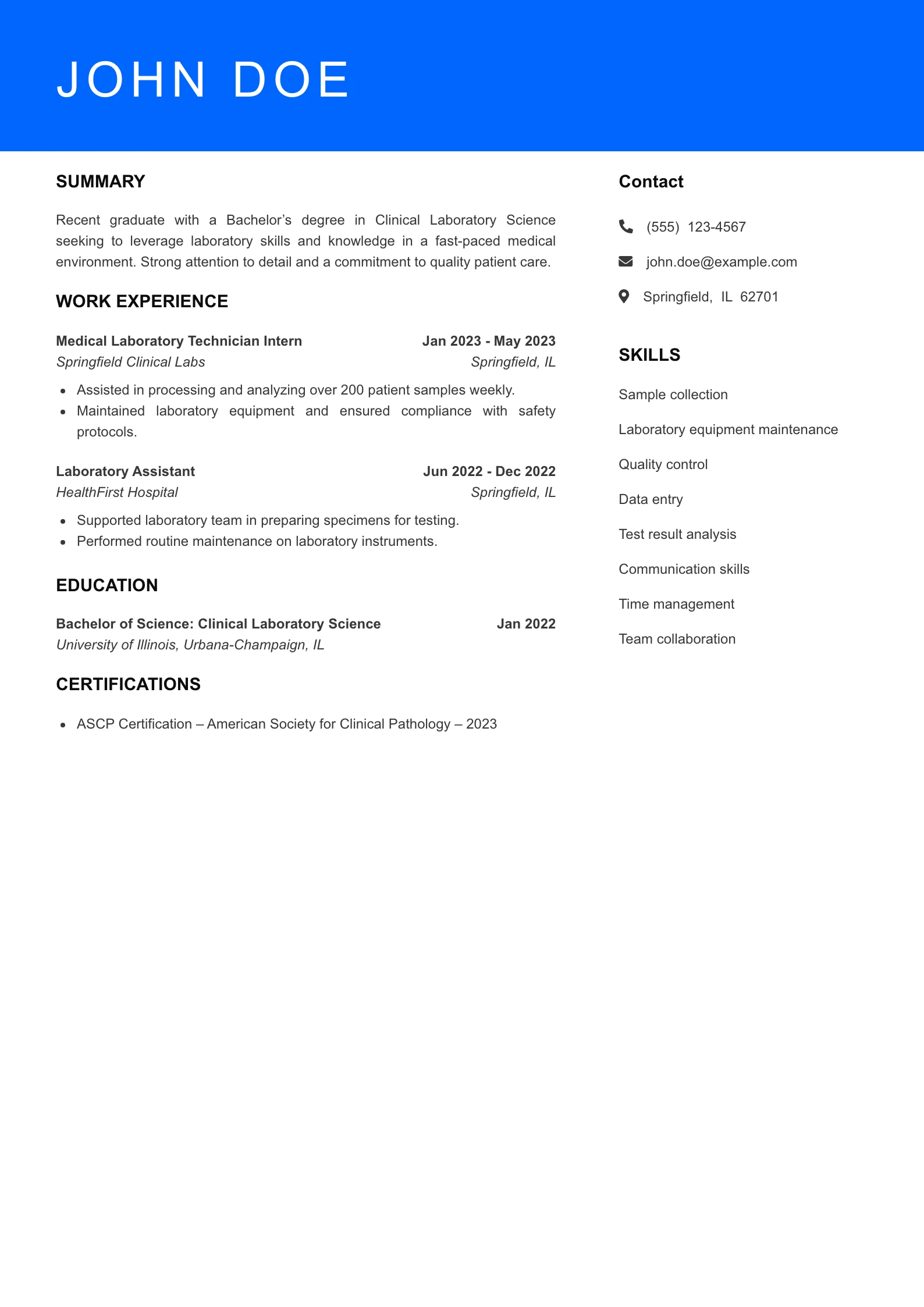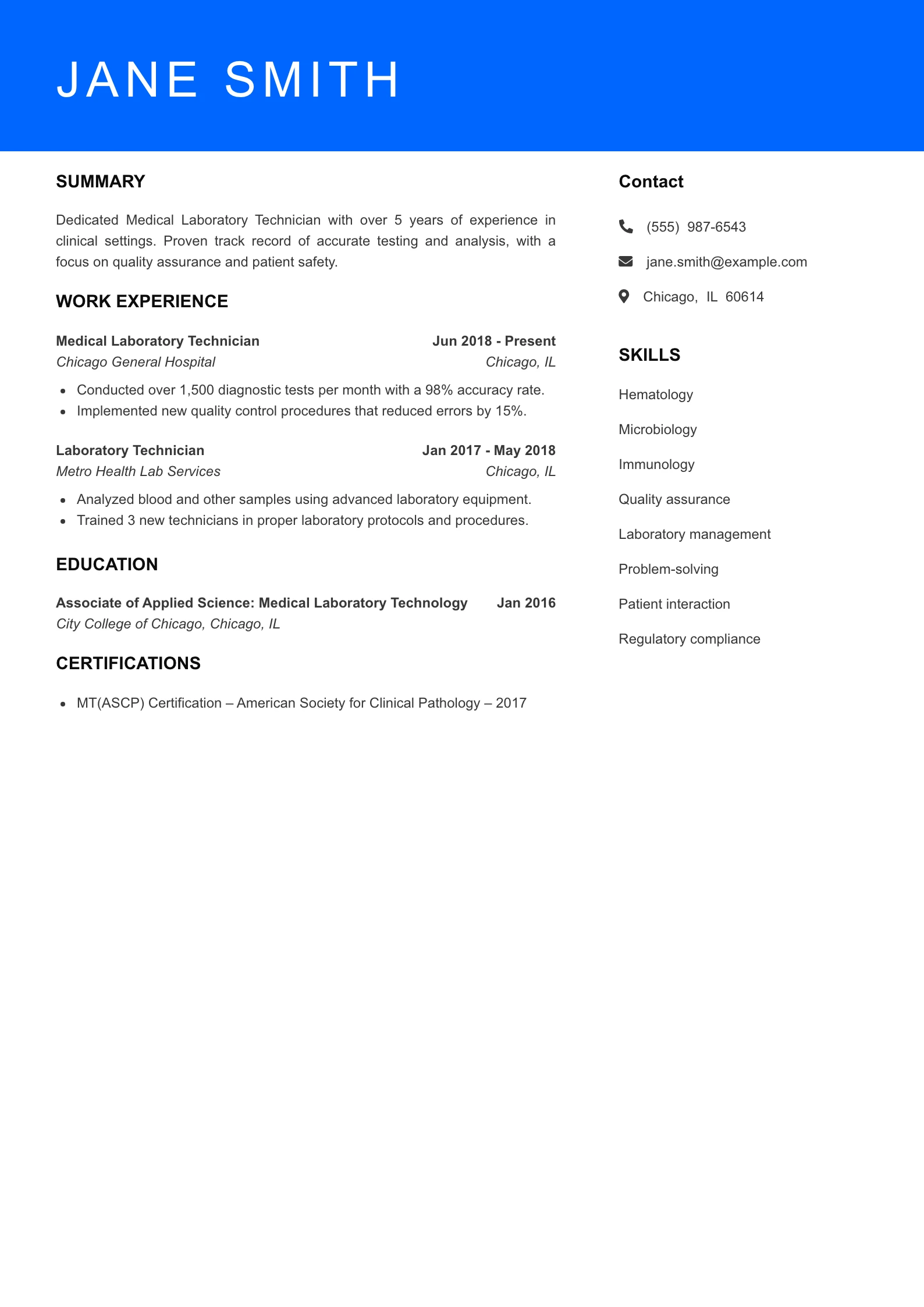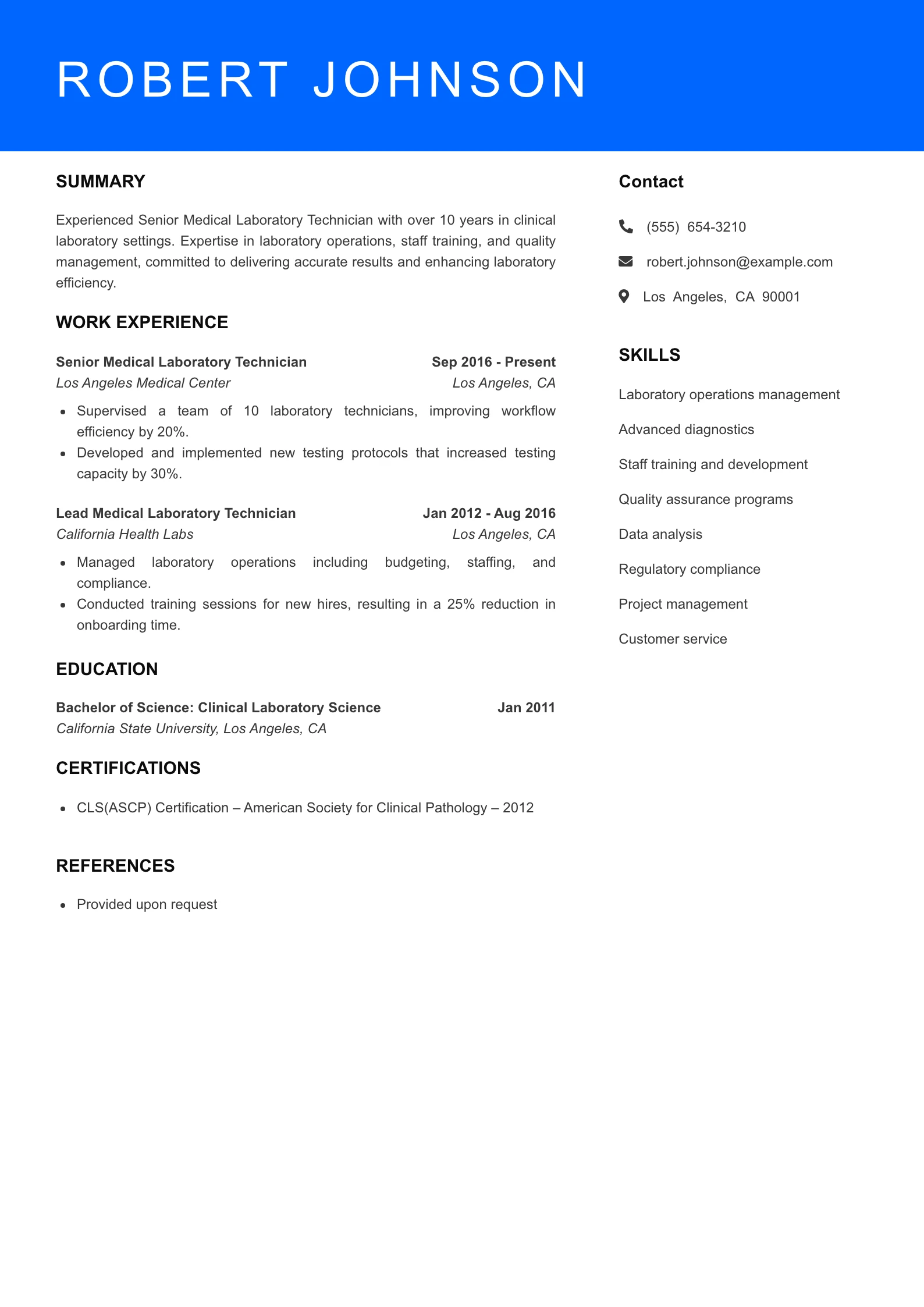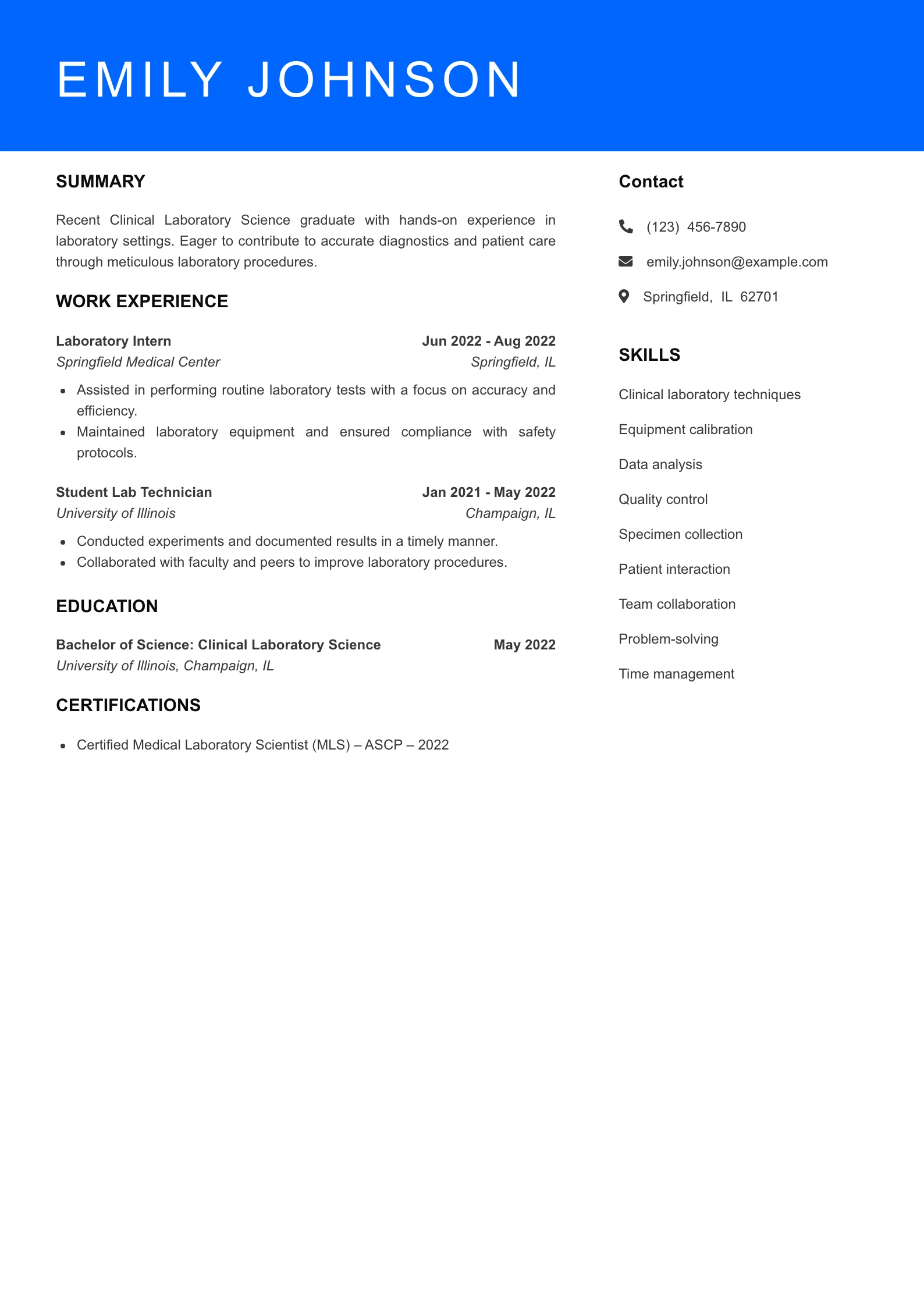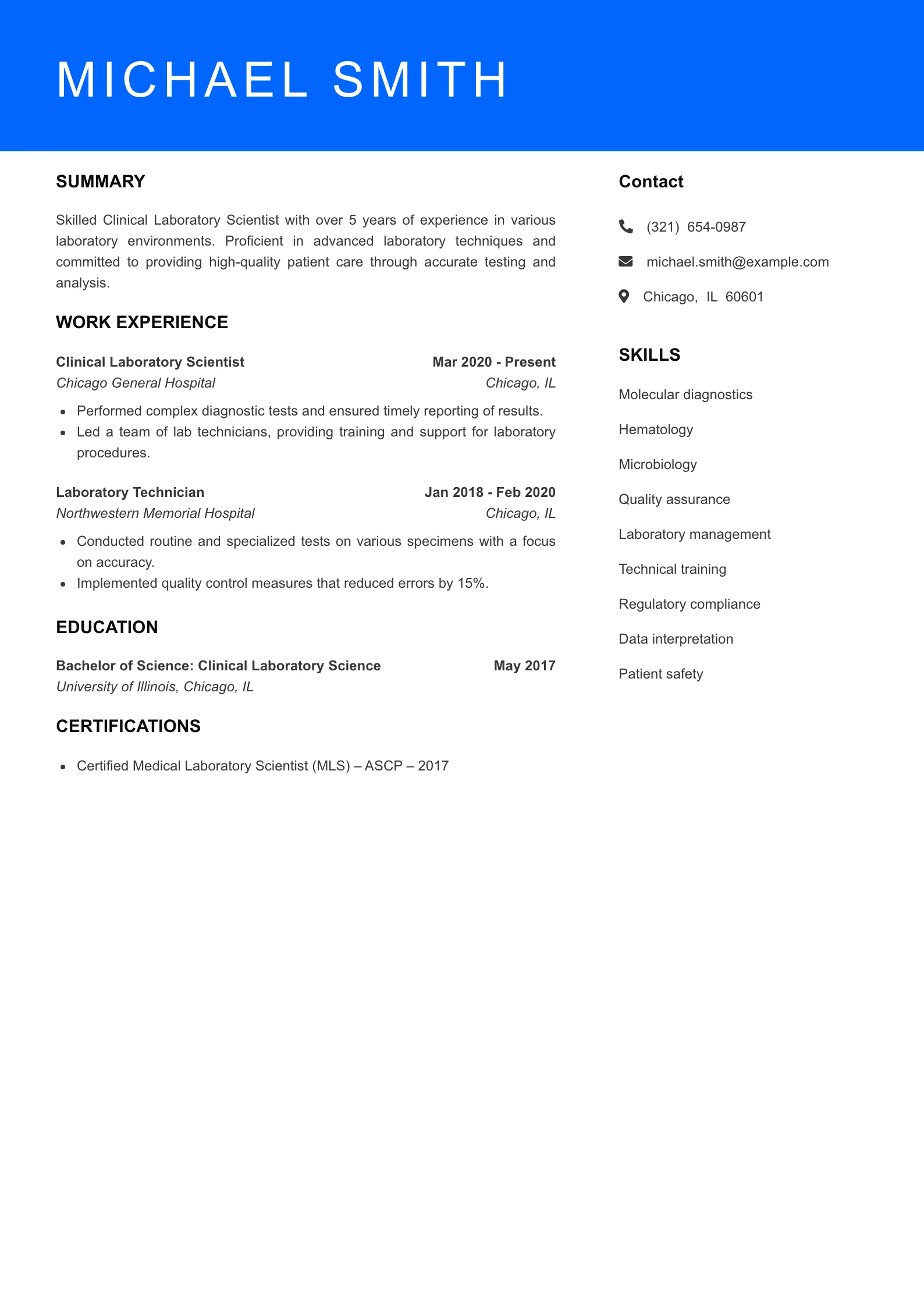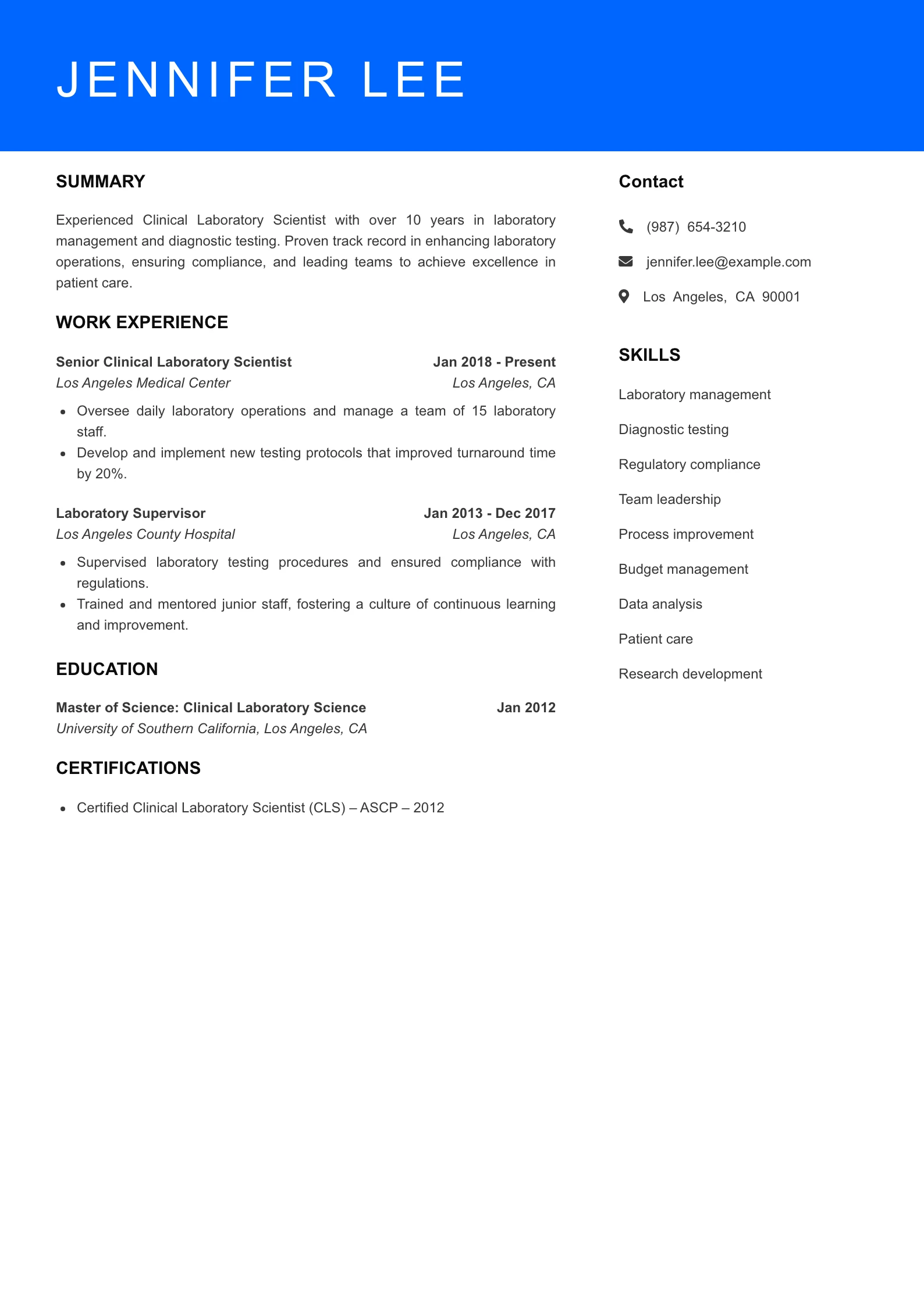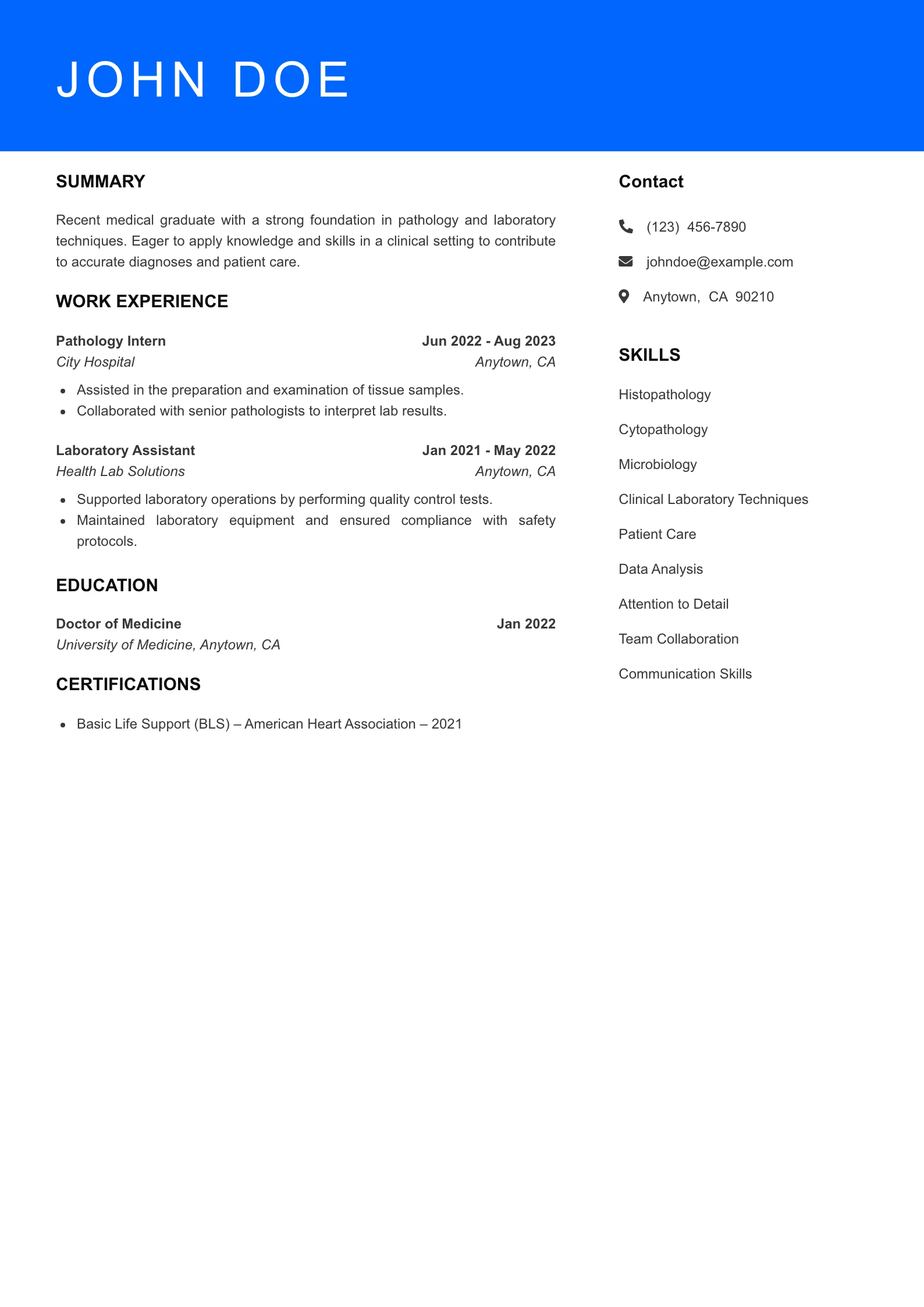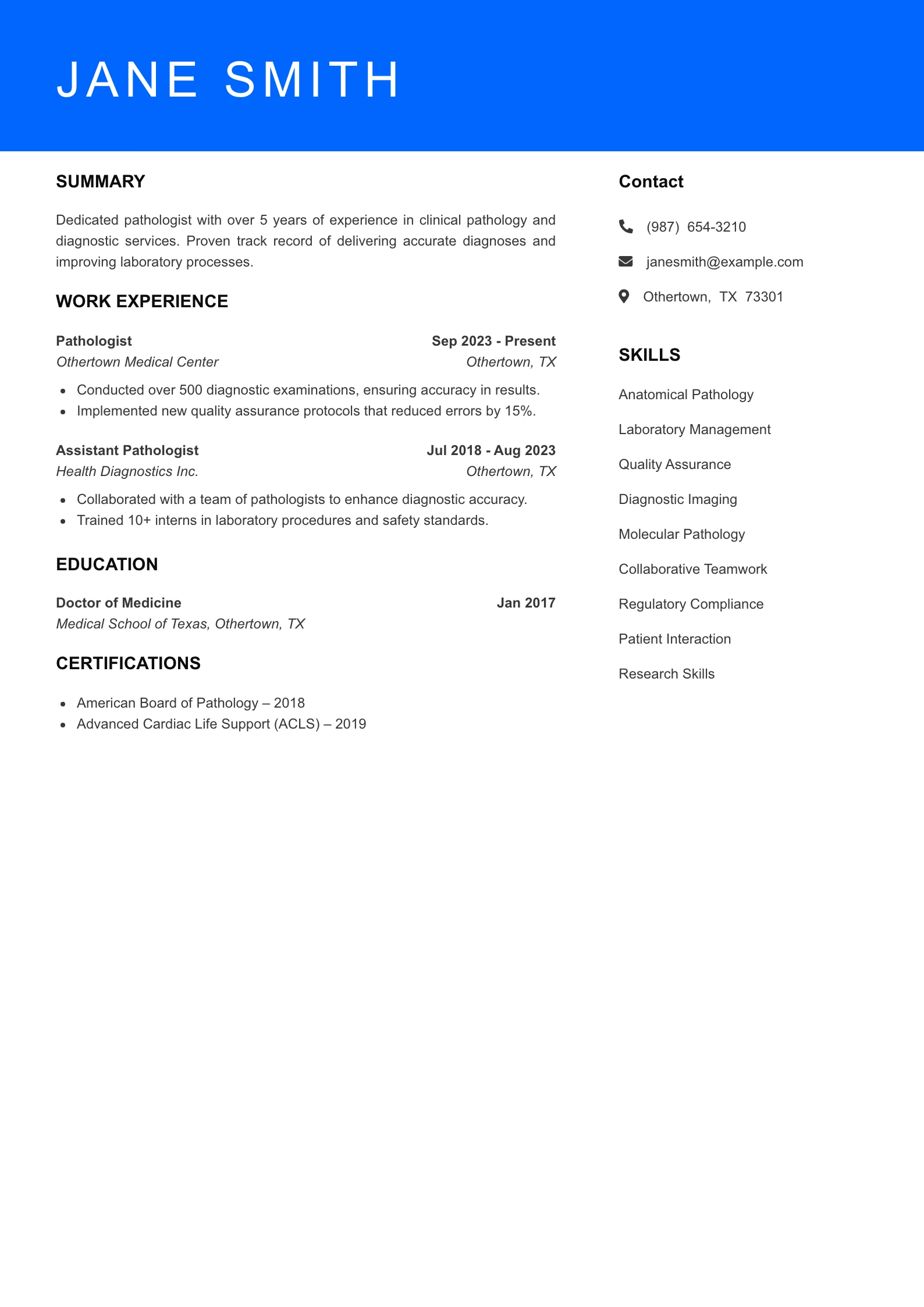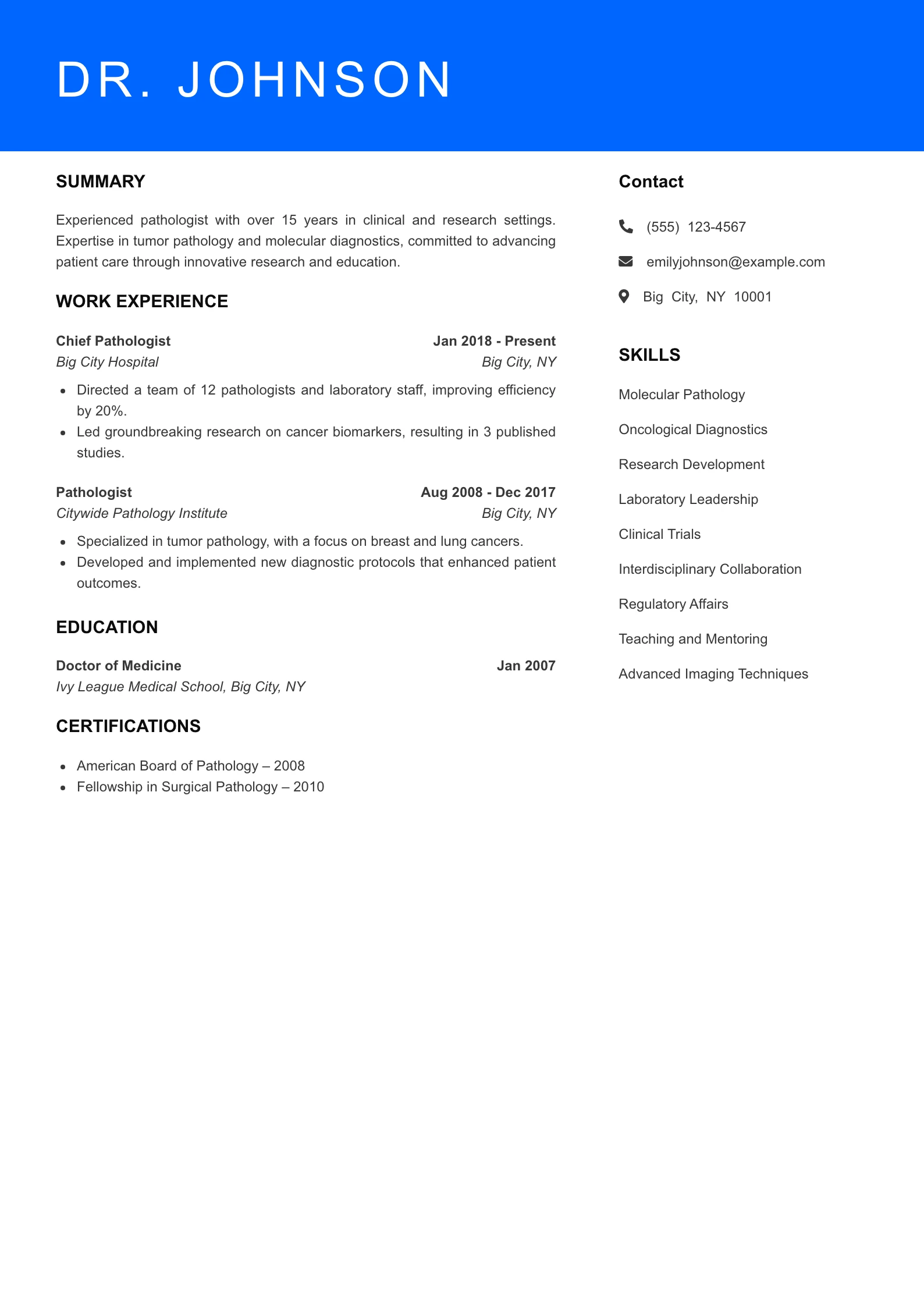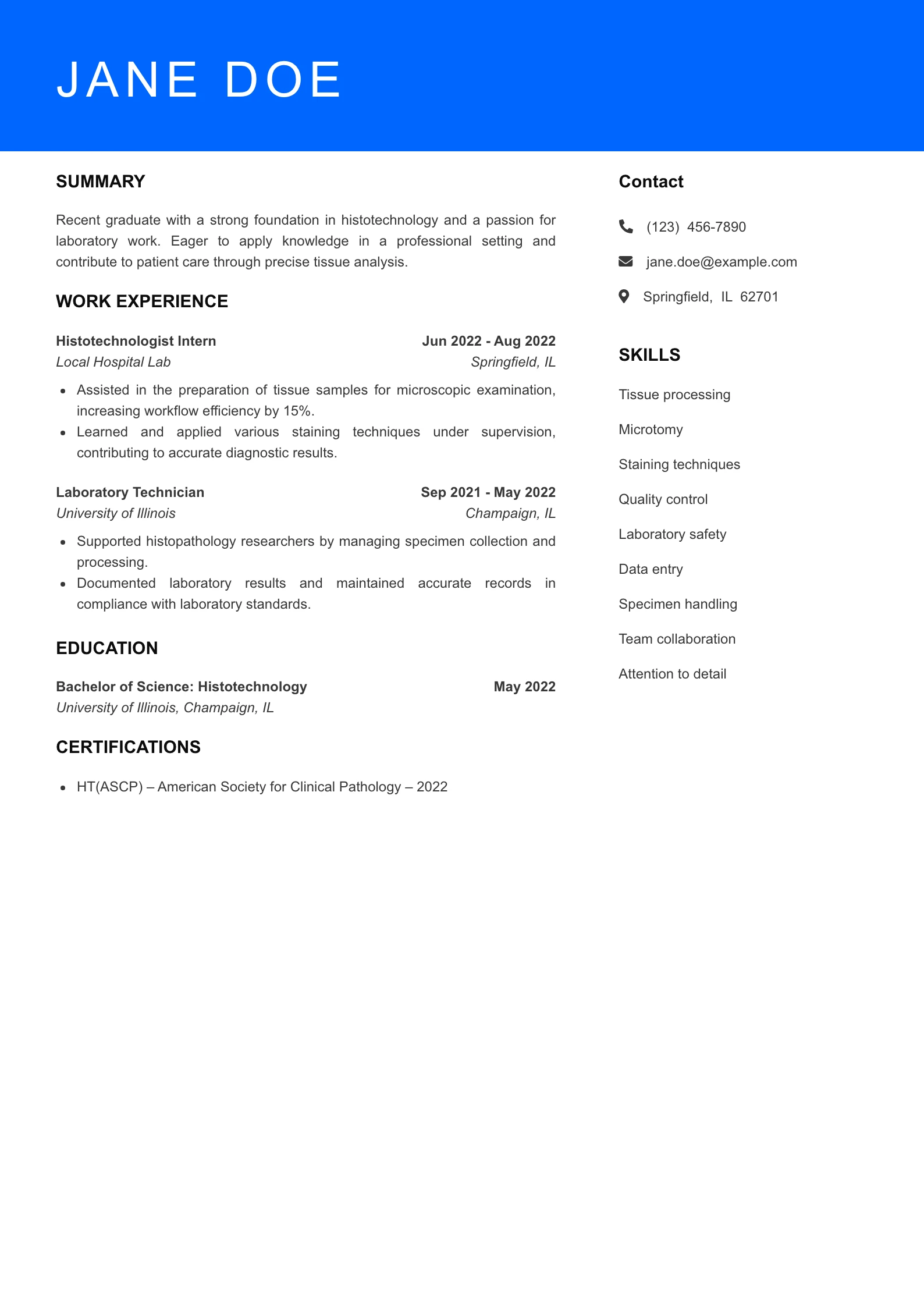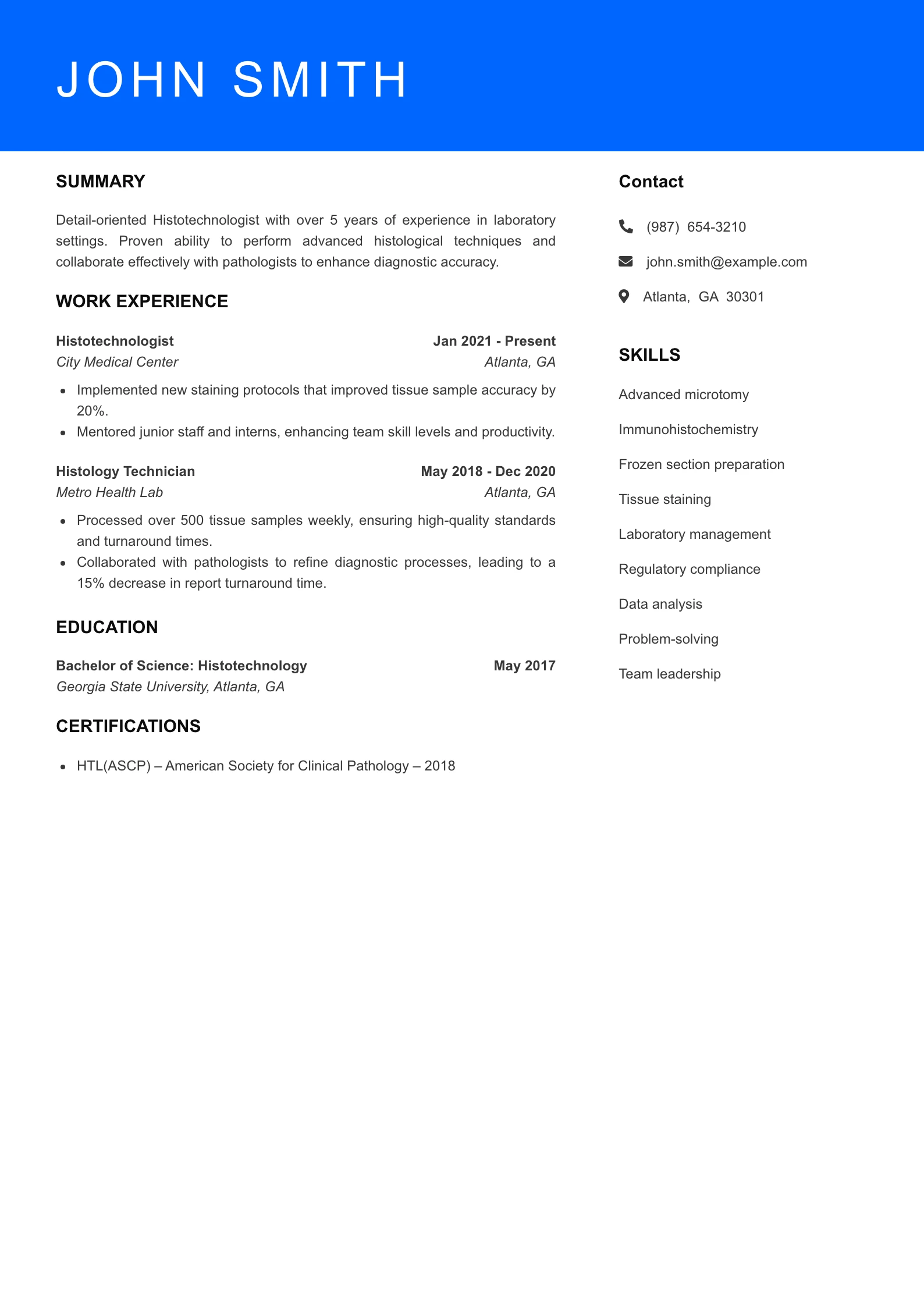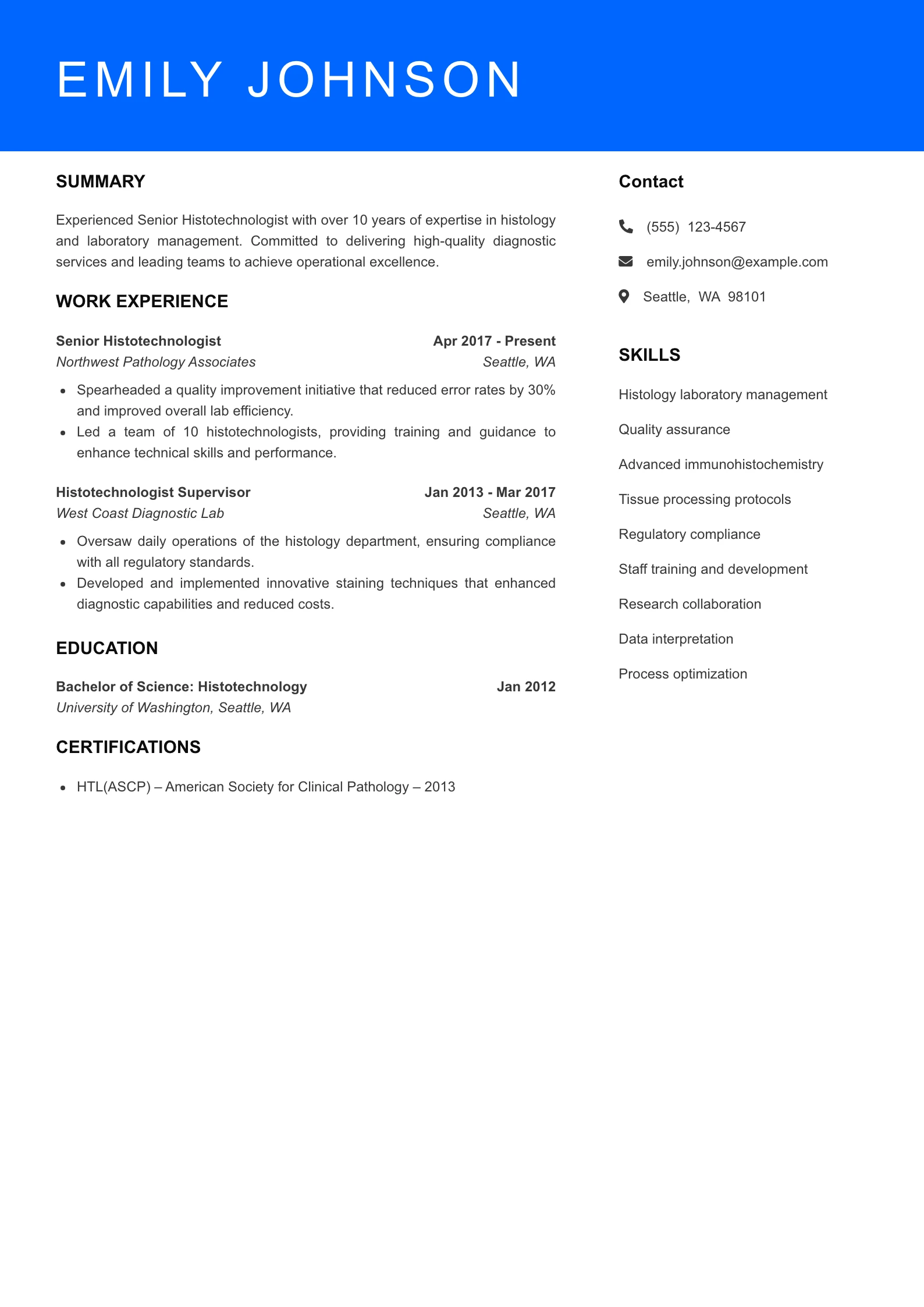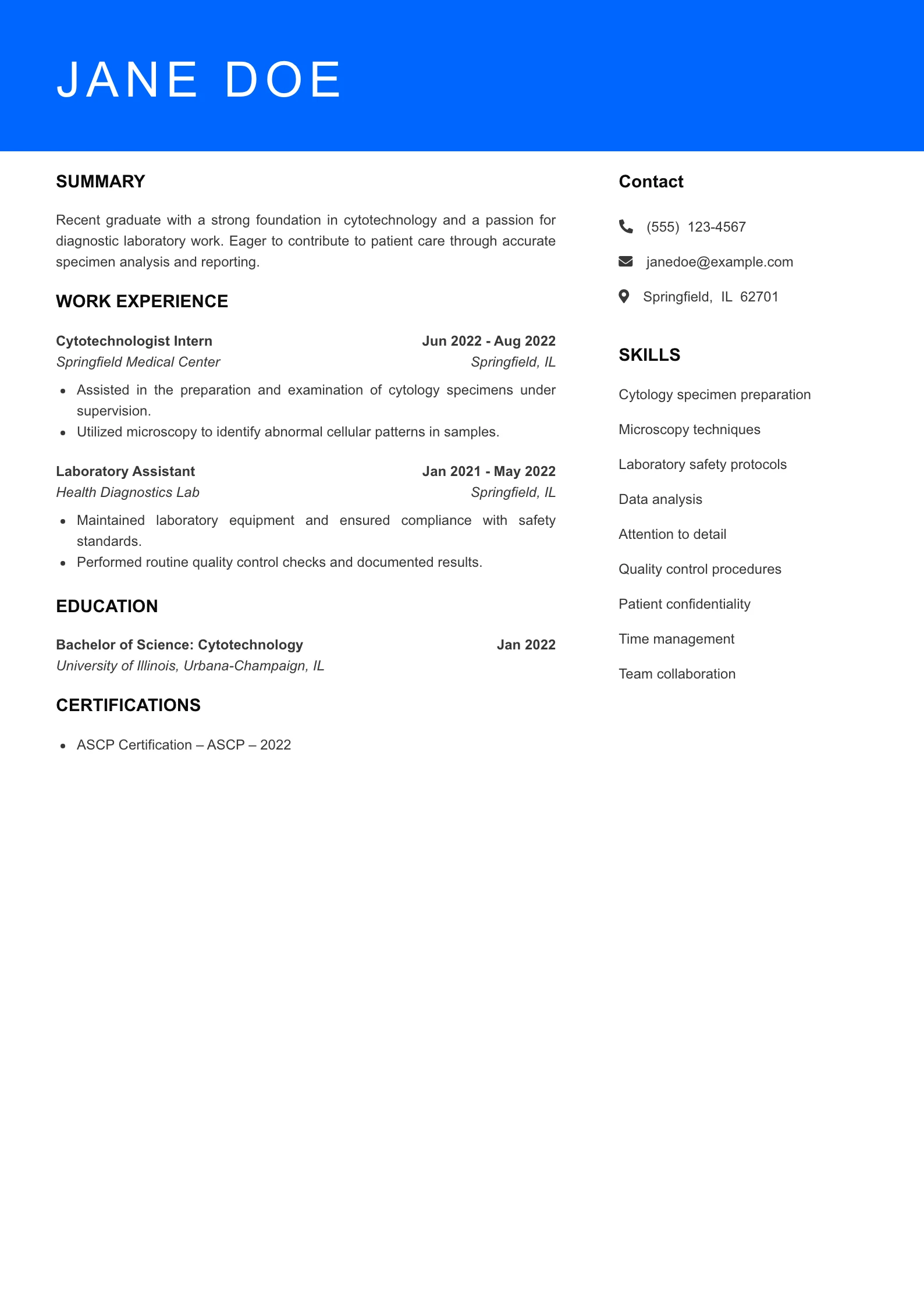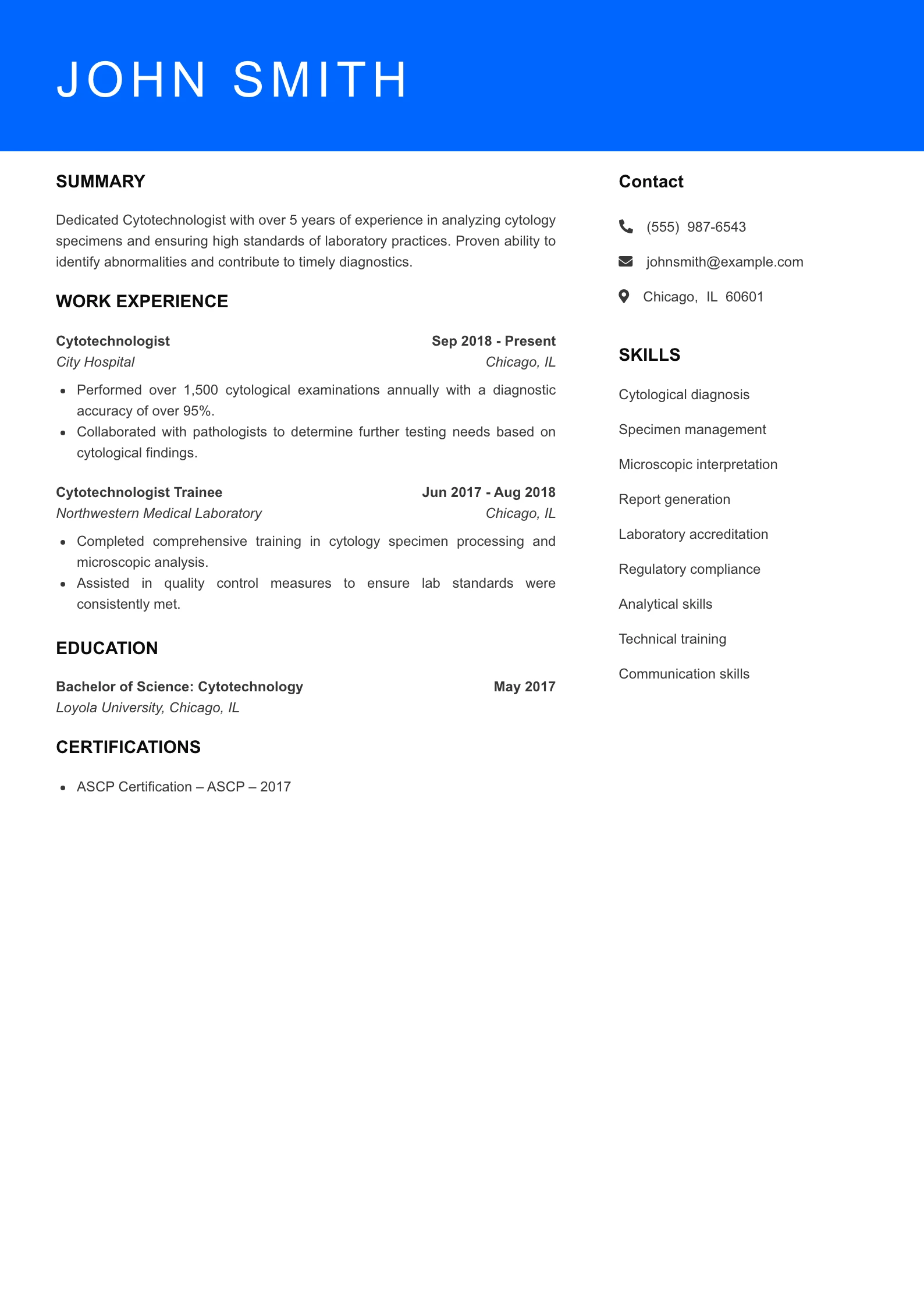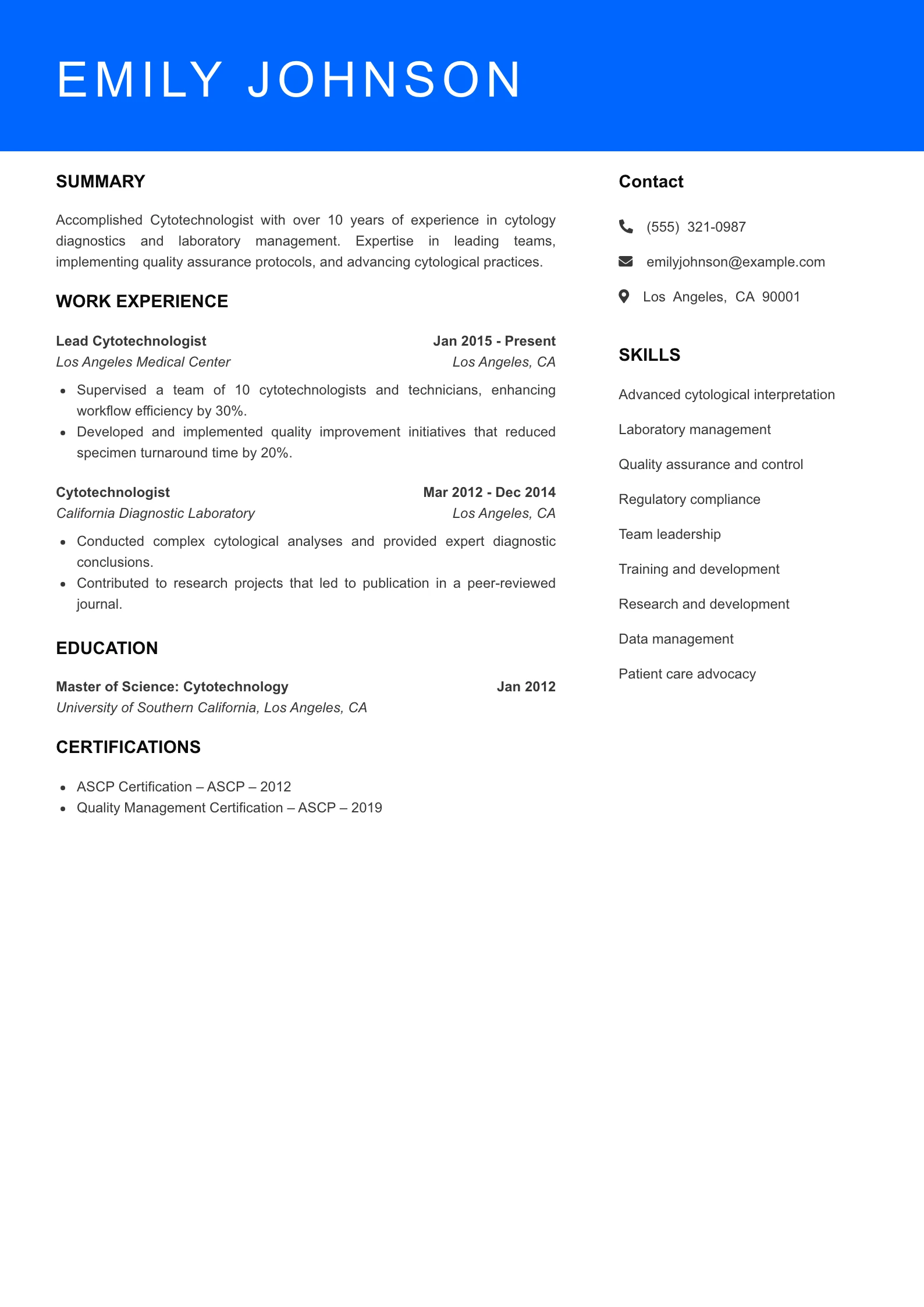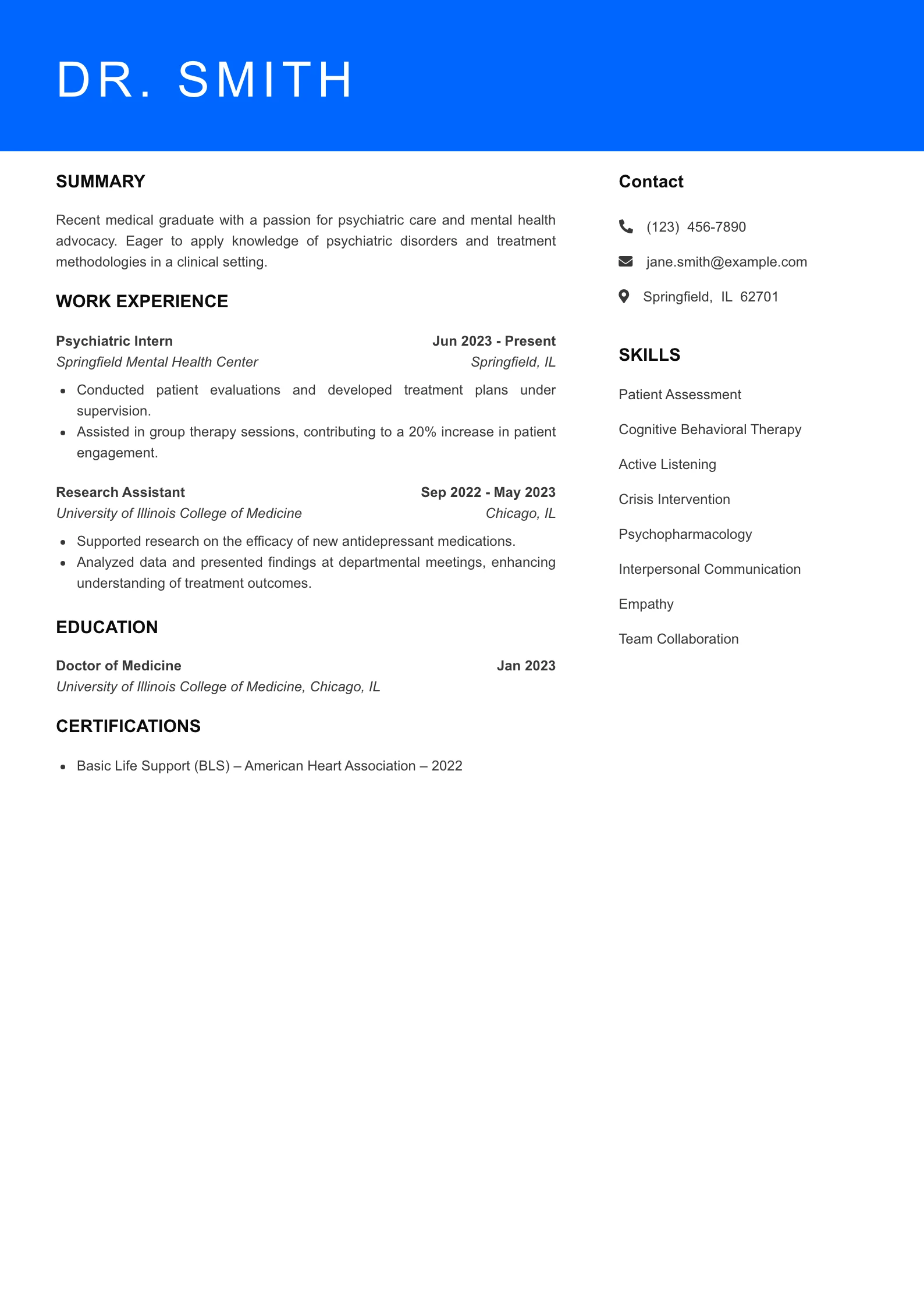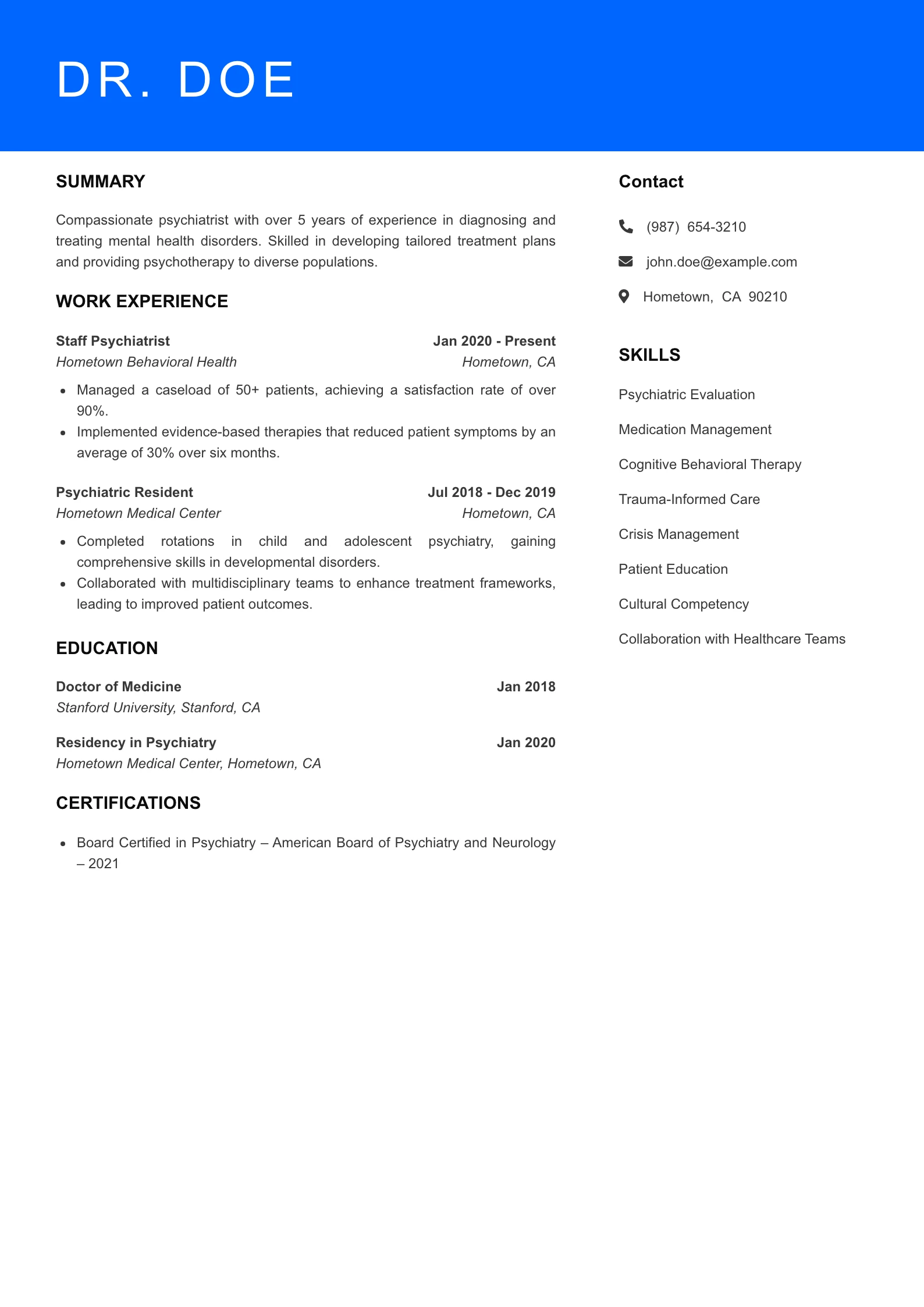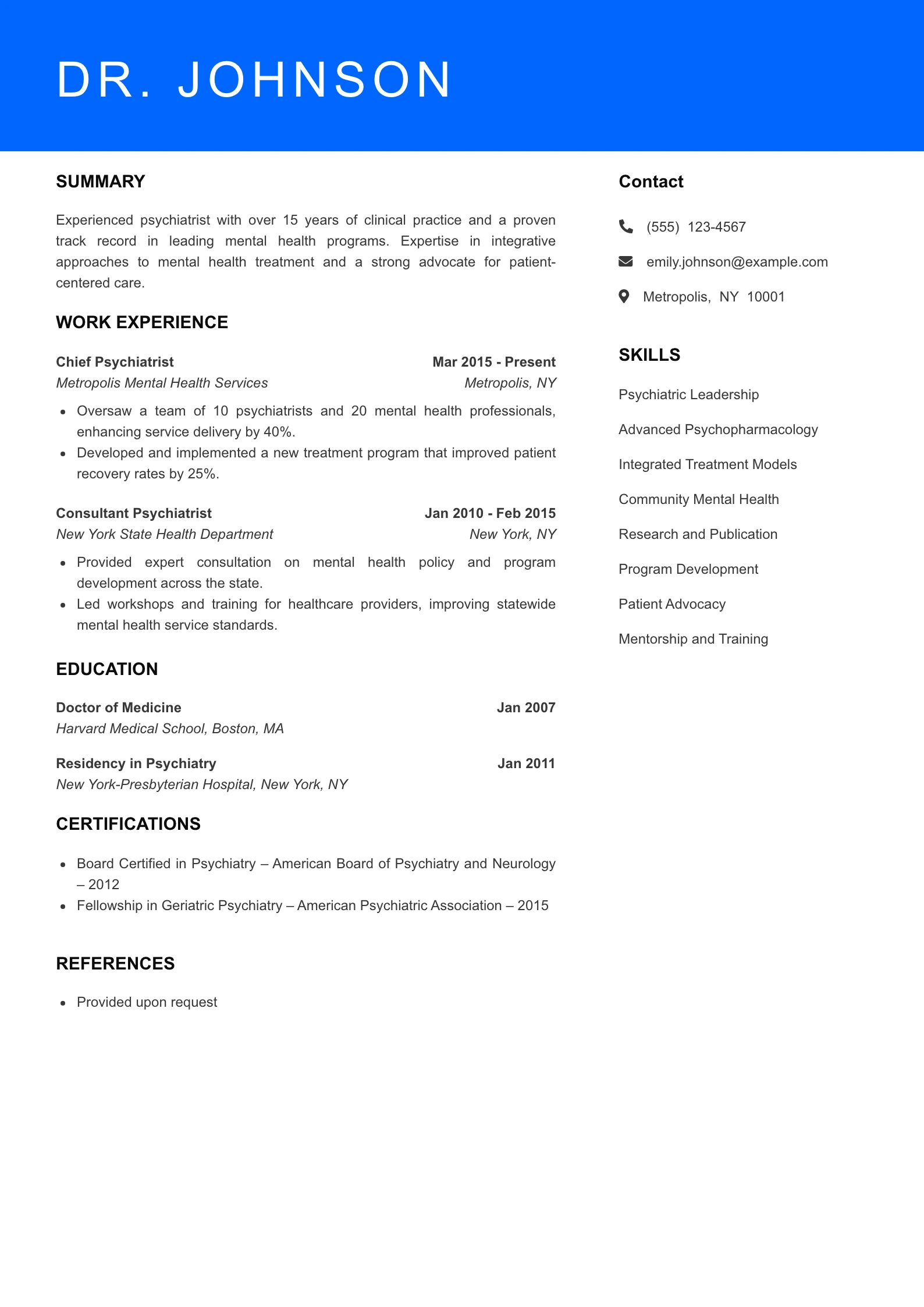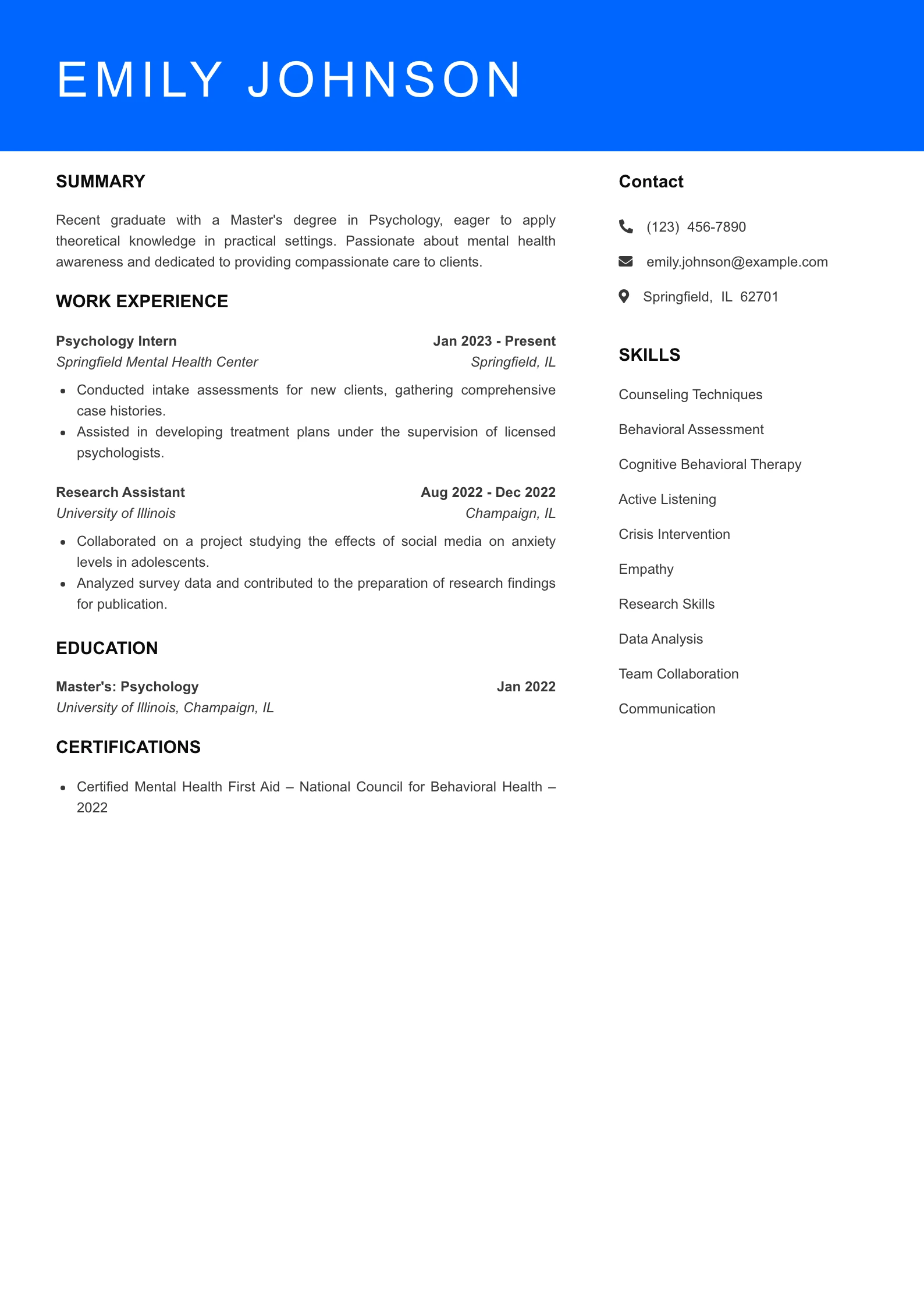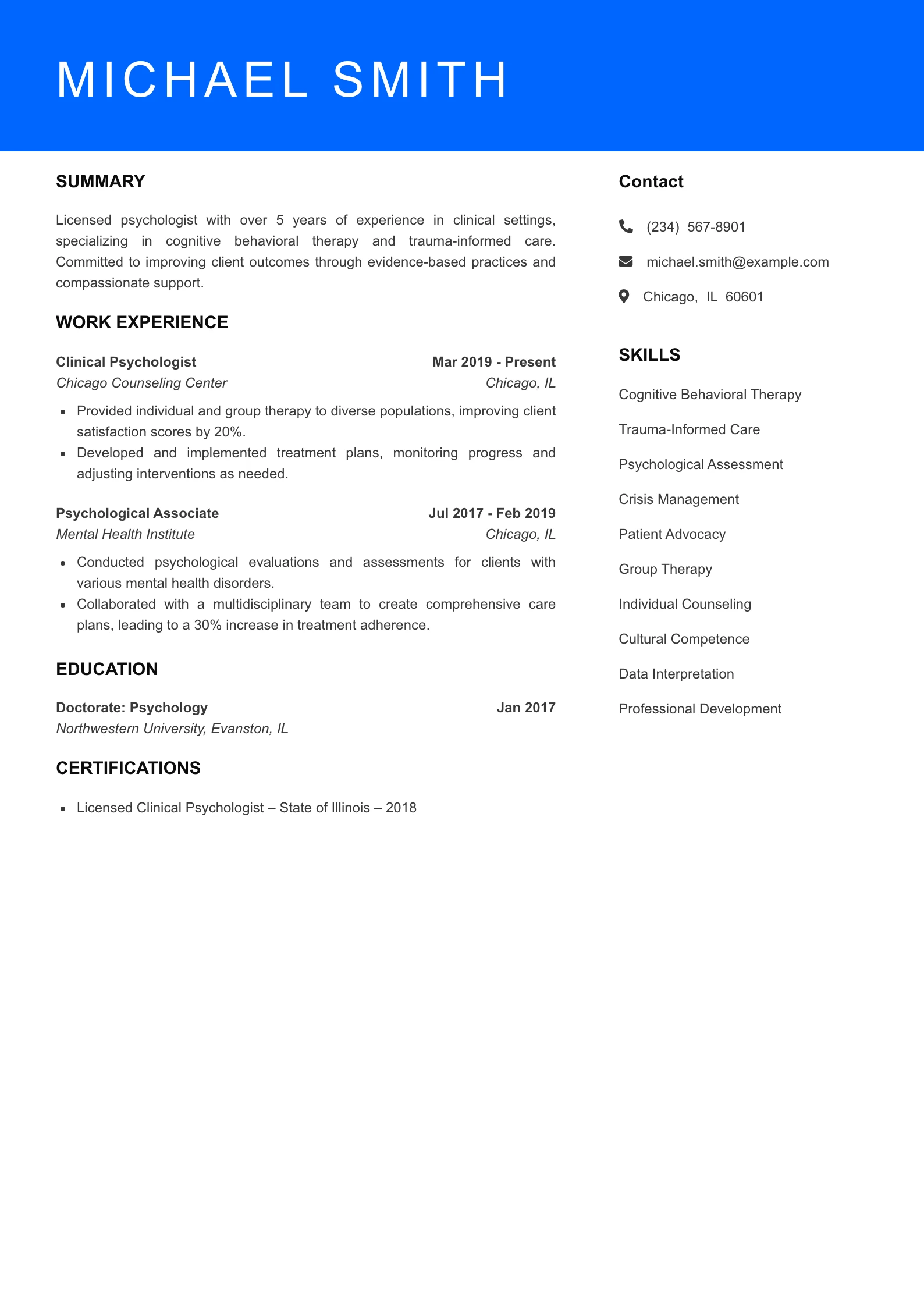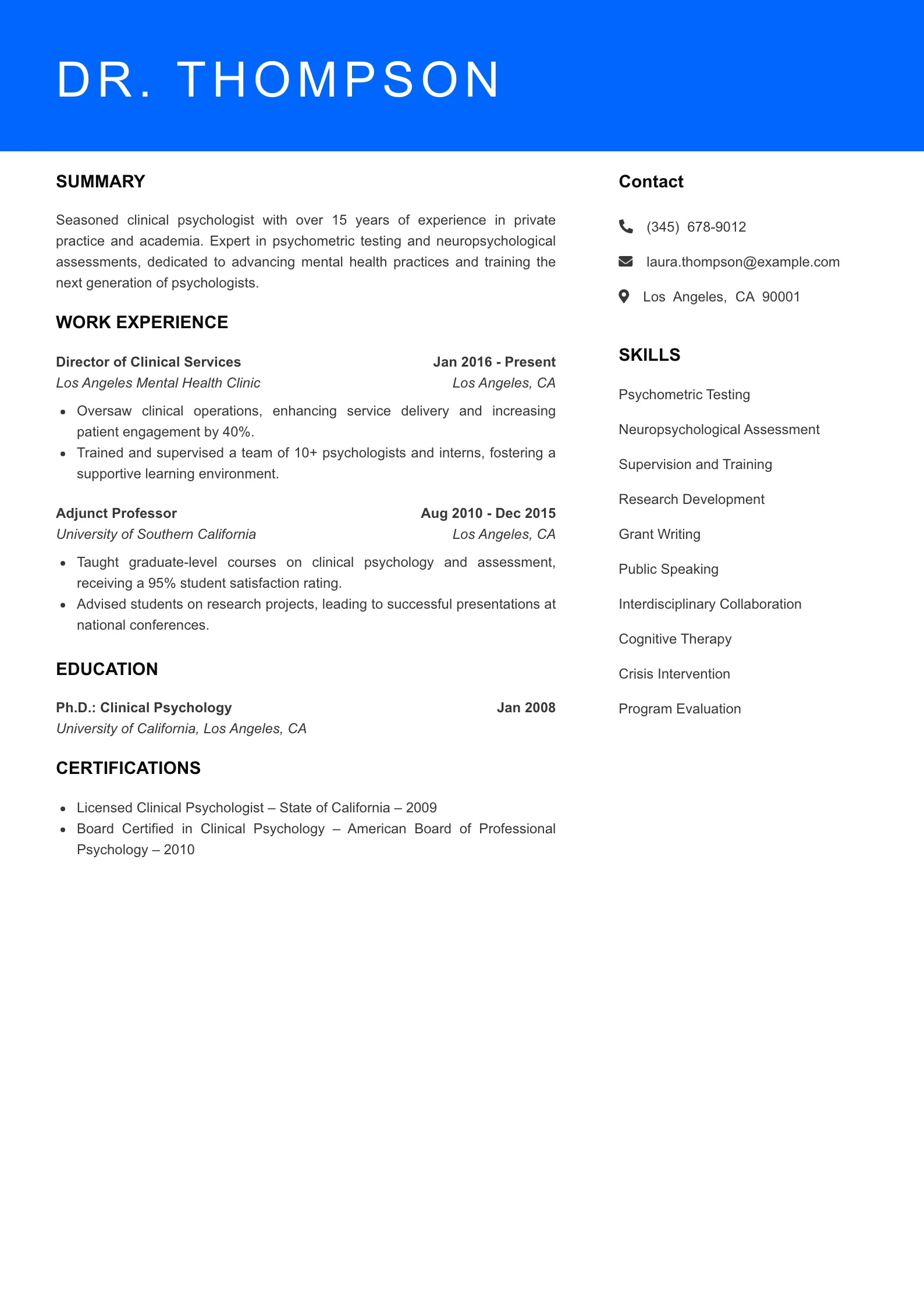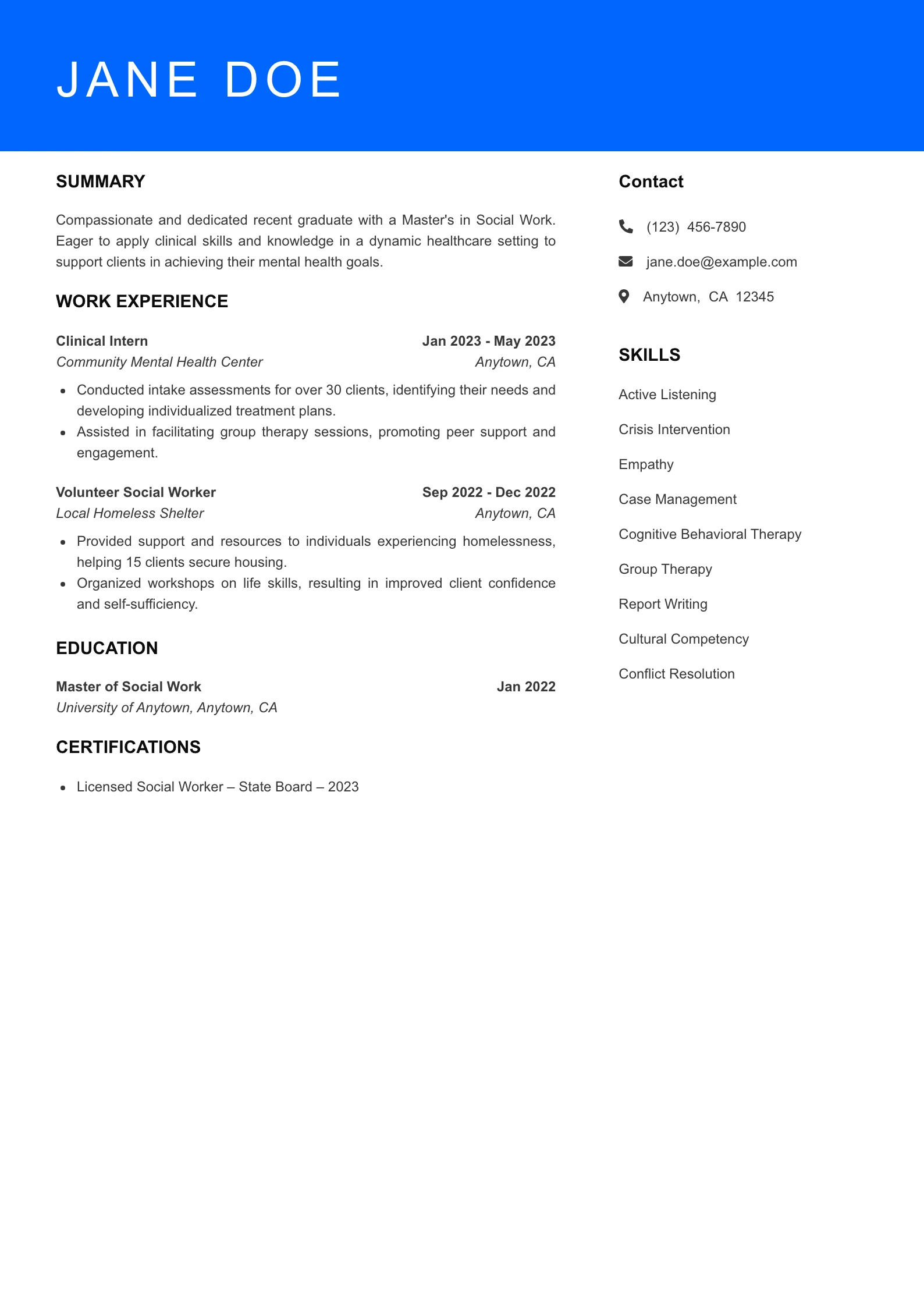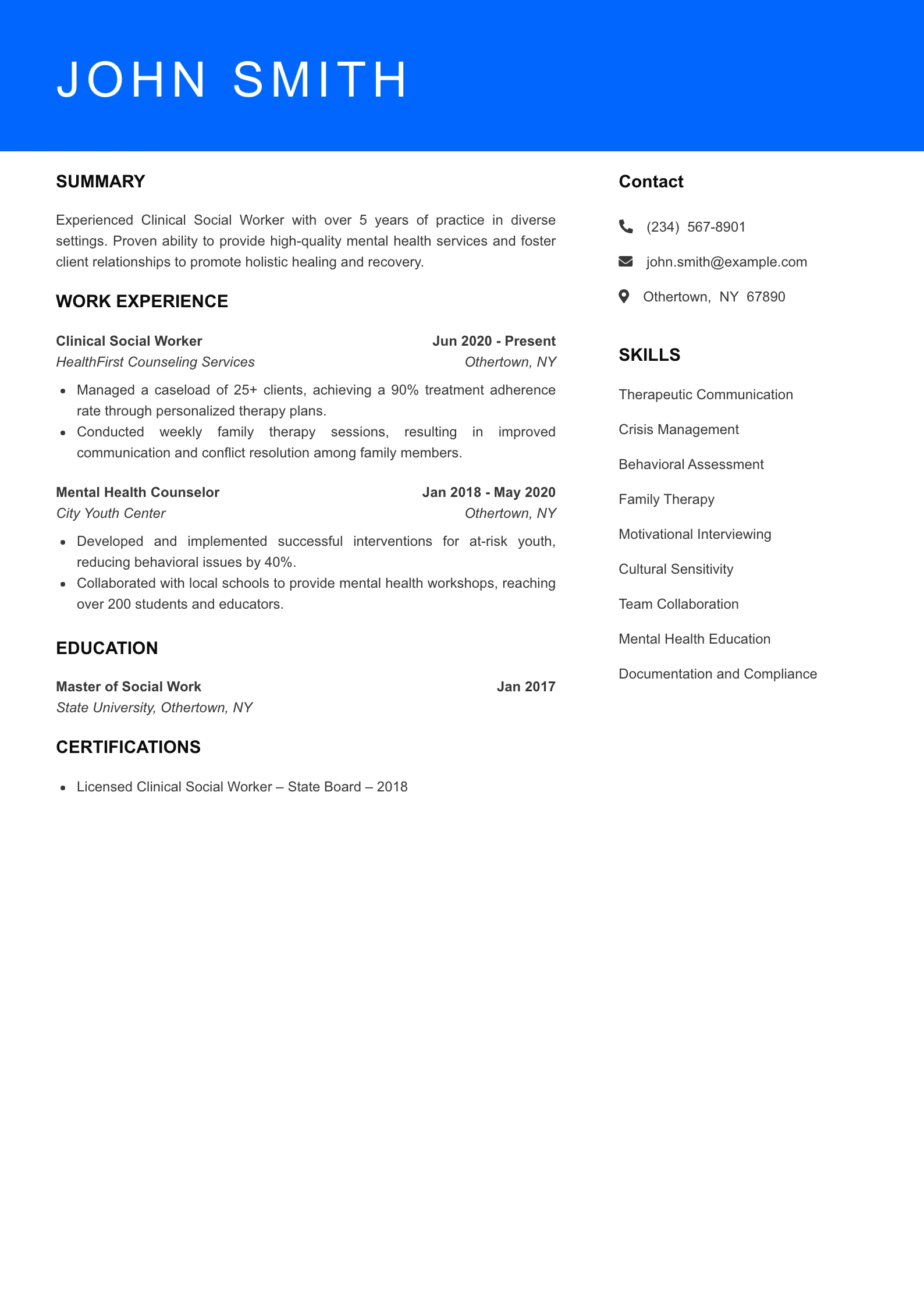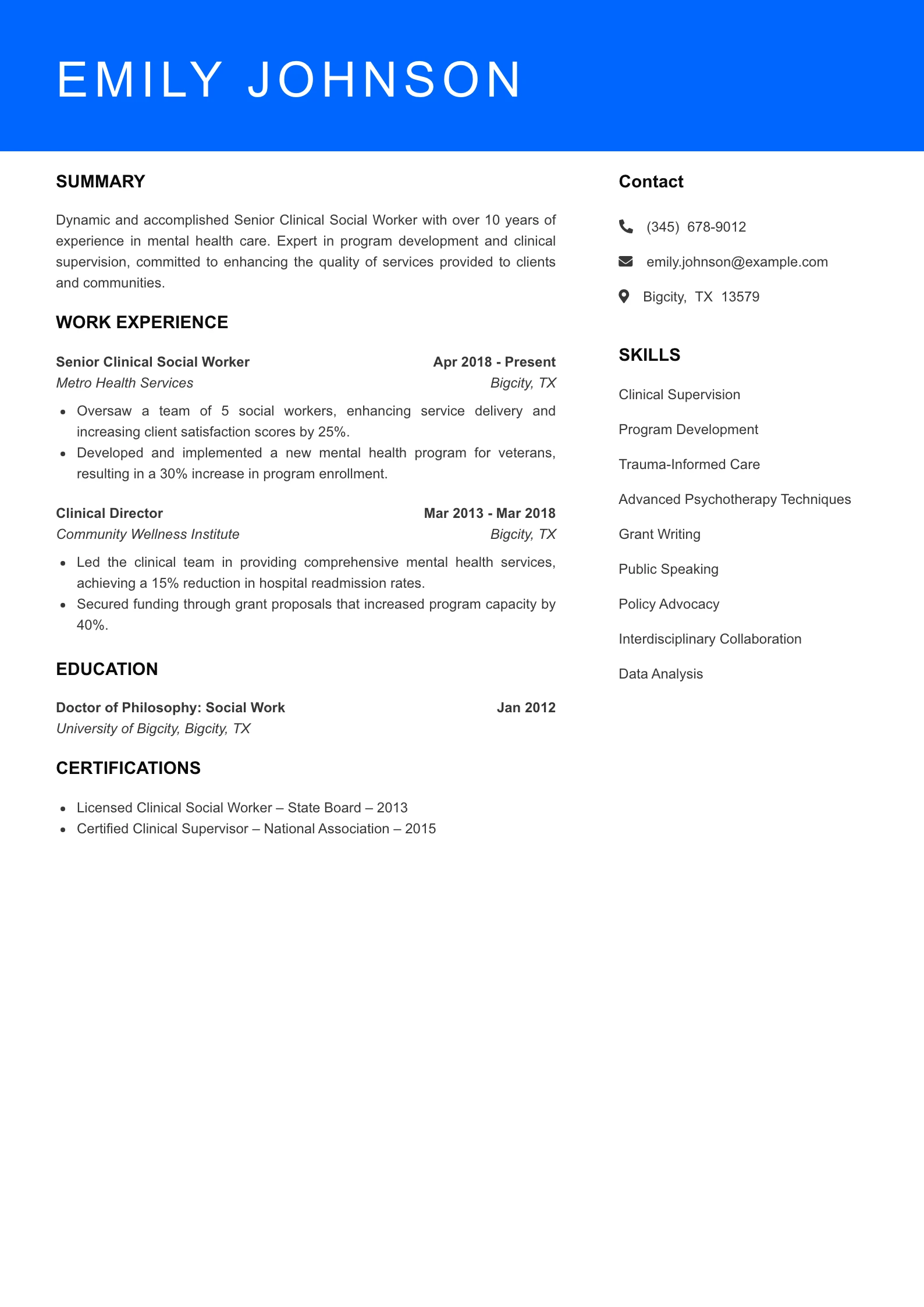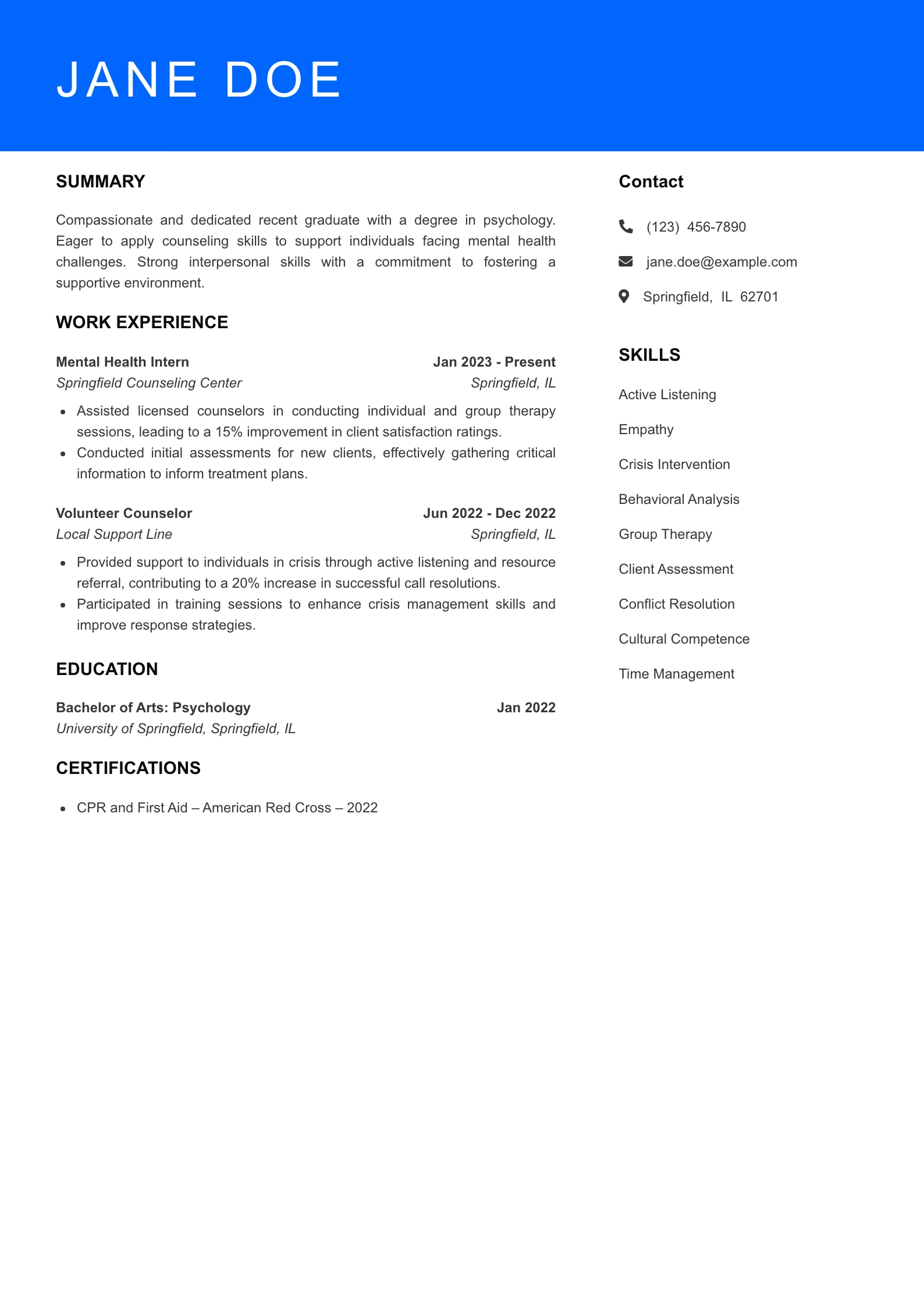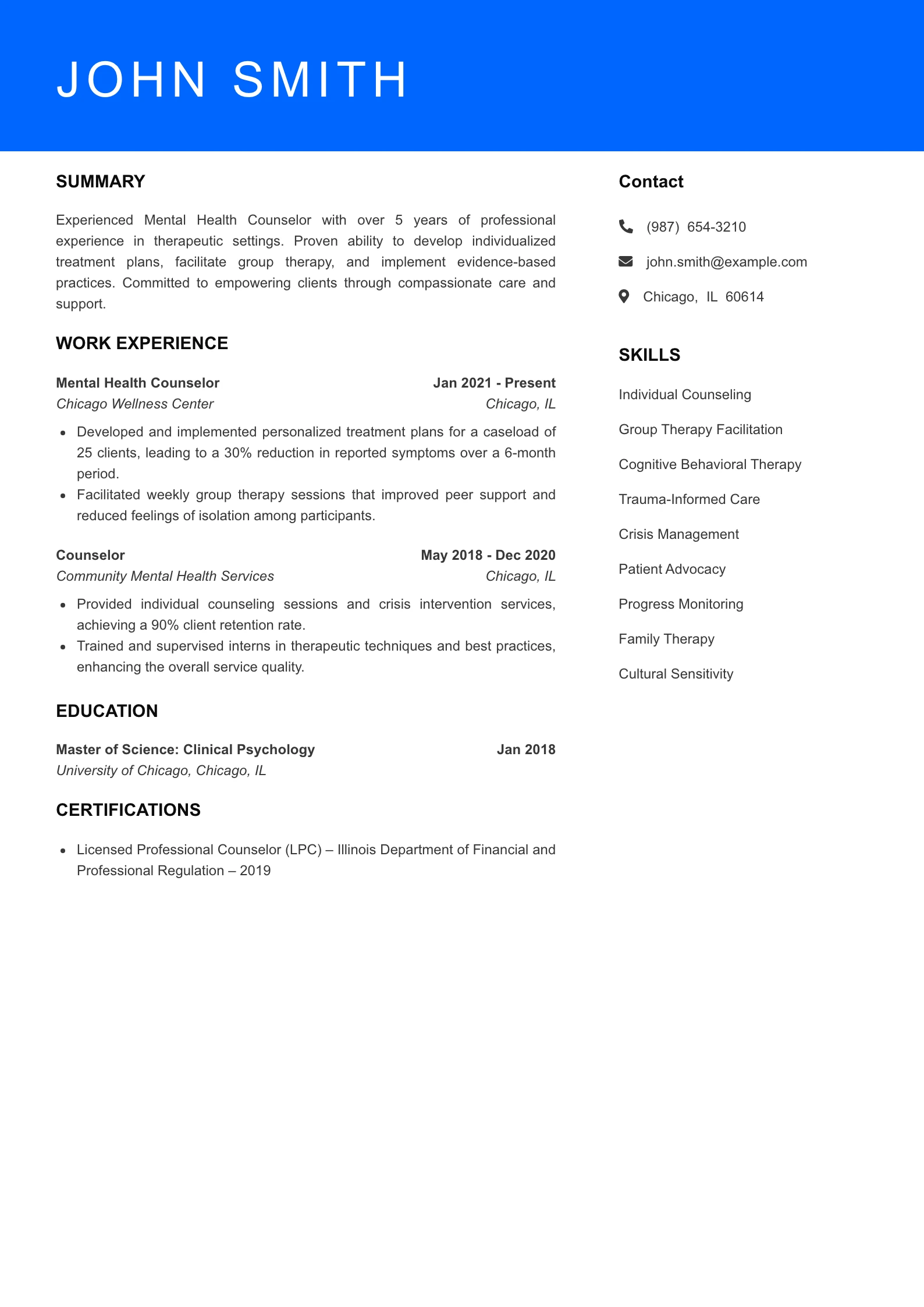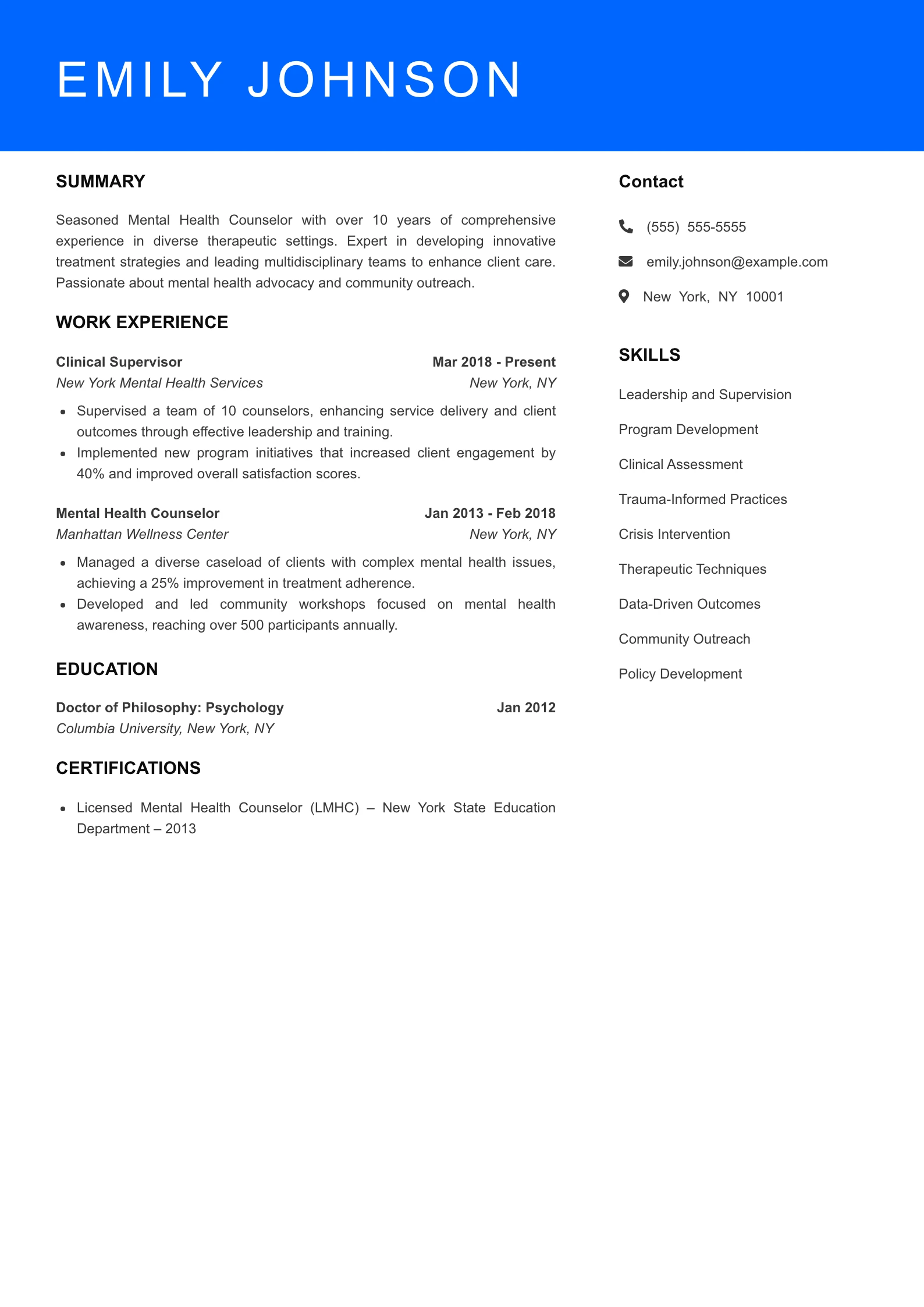Your Guide to Healthcare Resumes That Get Noticed
Stand Out in the Healthcare Job Market with a Tailored Resume
In the competitive world of healthcare, having a well-crafted resume is essential for showcasing your skills and qualifications. This guide will help you navigate the nuances of creating a standout resume that attracts the attention of hiring managers.
Introduction to the Job Sector
The healthcare industry is not only one of the largest sectors in the economy, but it also plays a critical role in the well-being of society. As healthcare hiring continues to grow, resumes become the first impression candidates make on potential employers. A well-structured resume can significantly enhance your chances of landing an interview, as it serves as a marketing tool that highlights your experience, skills, and what you can bring to a healthcare organization.
Hiring managers in the healthcare field typically look for specific qualifications based on the role you are applying for. They seek candidates who demonstrate both technical skills—such as certifications and relevant experience—and soft skills like communication and empathy. This page will provide you with resume examples that cater to various roles within healthcare, from nursing and administration to therapy and medical technology, ensuring you can tailor your application effectively.
Employment Trends and Statistics
- The healthcare industry is projected to grow by 15% from 2019 to 2029, adding over 2.4 million new jobs (U.S. Bureau of Labor Statistics).
- Registered Nurses (RNs) remain a high-demand role, with a median annual salary of approximately $75,000.
- The demand for healthcare support roles, including home health aides and personal care aides, is expected to increase by 34%, making it one of the fastest-growing job sectors.
- Telehealth services have seen a 154% increase in utilization, highlighting the growing importance of tech-savvy professionals in the healthcare field.
Resume Tips for Healthcare Professionals
Creating an impactful resume in the healthcare sector requires attention to detail and an understanding of what employers prioritize. Here are essential elements to consider:
- Certifications and Licenses: Clearly list any relevant certifications, licenses, and training. For example, RNs must include their nursing license and any specialty certifications.
- Relevant Experience: Focus on including job roles and responsibilities that directly relate to the position you’re applying for. Use action verbs to describe your accomplishments and contributions.
- Skills Section: Include both hard skills (e.g., medical procedures, software proficiency) and soft skills (e.g., teamwork, patient communication) to give a well-rounded view of your capabilities.
- Format and Clarity: Use a clean, professional format that enhances readability. Bullet points can help organize your experience, and clear section headings will guide hiring managers through your resume effortlessly.
- Tailored Content: Customize your resume for each application by incorporating keywords from the job description, aligning your skills and experience with the specific needs of the employer.
By applying these tips and utilizing the resources provided on this page, you will be well-equipped to create a compelling healthcare resume that stands out in the crowded job market.
Doctor Resume
Your Guide to Crafting an Exceptional Doctor Resume
Elevate your medical career with a standout resume that reflects your expertise and dedication to patient care.
Introduction to the Doctor Job Sector
In the competitive landscape of healthcare, a well-crafted resume is crucial for securing a position in the medical field. Hiring managers in the medical sector are inundated with applications, making it essential for candidates to present their qualifications clearly and compellingly. A doctor’s resume is not just a document but a vital marketing tool that showcases a candidate’s medical education, clinical experience, and personal attributes that contribute to effective patient care.
When reviewing resumes, hiring managers seek specific qualifications, including medical degrees, residency experiences, board certifications, and relevant skills. They also look for evidence of strong interpersonal skills and a commitment to continuing education. On this page, you will find tailored resume examples, key insights into the doctor hiring process, and practical advice to help you stand out in your job search.
Employment Trends and Statistics
- The U.S. Bureau of Labor Statistics projects a 3% job growth for physicians and surgeons from 2021 to 2031, indicating a steady demand for healthcare professionals.
- As of 2023, the median annual wage for physicians and surgeons is approximately $208,000, reflecting the high earning potential in this field.
- Specialties such as psychiatry, family medicine, and anesthesiology are experiencing particularly high demand, with an increasing number of job openings.
- The healthcare sector is expected to add around 2.6 million jobs by 2030, making it one of the fastest-growing industries in the economy.
- Rural and underserved areas continue to face significant shortages of healthcare providers, creating unique opportunities for doctors who are willing to work in these regions.
Resume Tips for Doctor Resume Professionals
Creating a resume that effectively highlights your qualifications in the medical field requires attention to detail and strategic formatting. Here are essential elements to include:
- Professional Summary: Open with a concise summary that encapsulates your career trajectory, areas of expertise, and key accomplishments, making it easy for hiring managers to grasp your qualifications quickly.
- Education and Training: Clearly list your medical degree(s), residency, fellowships, and any relevant certifications (e.g., Board Certification, ACLS, BLS) prominently.
- Clinical Experience: Detail your clinical rotations and practice experience, including the types of settings you’ve worked in, patient volumes, and procedures performed.
- Skills Section: Include both hard and soft skills relevant to the medical field, such as diagnostic abilities, communication skills, and proficiency in electronic medical records (EMR) systems.
- Formatting: Use a clean, professional format with clear headings and bullet points. Ensure consistency in font style and size, and keep the resume to one or two pages at most.
- Continuing Education: Highlight any ongoing education or training, such as workshops, seminars, or additional certifications that demonstrate your commitment to professional growth.
Utilizing these tips will help you build a compelling doctor resume that stands out in the competitive healthcare job market.
Ready to create an outstanding resume? Use our resume builder to create an outstanding resume in 15 min.
Midwife Resume Examples
Craft the perfect resume to stand out in the rewarding field of midwifery.
Introduction to the Job Sector
In the dynamic and compassionate field of midwifery, a well-crafted resume is essential for making a lasting first impression. Resumes serve as a powerful tool for midwives to showcase their qualifications, experience, and dedication to maternal and infant health. Given the unique requirements of this profession, hiring managers prioritize candidates who demonstrate both clinical expertise and a deep understanding of patient care. A compelling resume not only highlights your skills but also tells the story of your commitment to supporting families during one of life’s most significant events.
Hiring managers typically seek detailed qualifications, such as relevant certifications, hands-on experience, and strong interpersonal skills. They look for evidence of your ability to provide holistic care, communicate effectively, and handle emergency situations with composure. This page provides a range of midwife resume examples and templates tailored specifically for aspiring midwives and seasoned professionals alike, offering insights into effective formatting, language, and key elements to include.
Whether you are a new graduate or an experienced midwife looking for your next opportunity, this page is designed to guide you through the resume-building process. You’ll find examples that highlight various styles and formats, along with tips on how to customize each to reflect your personal journey and professional milestones.
Employment Trends and Statistics
- According to the Bureau of Labor Statistics (BLS), employment for nurse midwives is projected to grow 12% from 2020 to 2030, much faster than the average for all occupations.
- In 2022, the median annual salary for nurse midwives was approximately $115,800, with the highest earners making over $180,000.
- The demand for nurse midwives is particularly high in rural and underserved urban areas, where healthcare access is limited.
- Approximately 65% of midwives work in hospitals, while others find employment in private practices, community health centers, or as independent practitioners.
- The increasing focus on natural childbirth and personalized maternal care has led to a rise in midwifery services, making this a promising field for new entrants.
Resume Tips for Midwife Resume Examples & Templates Professionals
When crafting a resume as a midwife, it’s crucial to include several key elements that demonstrate your expertise and commitment to quality care:
- Certifications: Clearly list relevant certifications, such as Certified Nurse Midwife (CNM) or Certified Midwife (CM), to validate your qualifications.
- Clinical Skills: Highlight specific clinical skills relevant to midwifery, including prenatal care, labor and delivery management, and postpartum support.
- Experience: Detail your professional experience with quantifiable achievements, such as the number of deliveries attended or patient satisfaction scores.
- Education: Include your educational background, emphasizing your degree in nursing and any additional midwifery training or coursework.
- Personal Statement: Consider a brief personal statement or objective at the top of your resume that encapsulates your philosophy on midwifery and your career aspirations.
- Formatting: Use a clean and professional layout, with clear headings and bullet points for easy readability, ensuring that your resume is ATS-friendly.
By incorporating these elements, you will create a compelling resume that effectively showcases your qualifications and sets you apart in the competitive field of midwifery.
See More Midwife Resume Examples
Ready to create an outstanding resume? Use our resume builder to create an outstanding resume in 15 min.
Medical Laboratory Technician Resume
Unlocking Your Future as a Medical Laboratory Technician
Crafting a standout resume is crucial in the competitive field of medical laboratory technology. This guide provides the insights and examples you need to secure your next opportunity.
Understanding the Medical Laboratory Technician Sector
In the healthcare industry, Medical Laboratory Technicians (MLTs) play a pivotal role in diagnosing diseases and monitoring patient health through laboratory testing. A well-crafted resume is your first step in showcasing your skills and competencies to potential employers. Hiring managers typically prioritize candidates who not only possess the necessary technical expertise but also demonstrate strong analytical skills, attention to detail, and the ability to work collaboratively in a fast-paced environment.
On this page, you will find tailored resume examples specifically designed for MLT professionals, along with tips and strategies to enhance your job application. Whether you’re a seasoned technician or freshly entering the field, these resources will help you present your qualifications effectively.
Employment Trends and Statistics
- The employment of Medical Laboratory Technicians is projected to grow by 11% from 2022 to 2032, which is faster than the average for all occupations.
- The median annual wage for MLTs was approximately $57,800 as of May 2022, with higher salaries often seen in metropolitan areas or specialized roles.
- As healthcare technology continues to evolve, skills in molecular biology and laboratory informatics are increasingly in demand.
- Nearly 85% of MLT employers prioritize certifications from recognized organizations, such as the American Society for Clinical Pathology (ASCP).
- Job openings for MLTs are expected to arise from the need to replace workers who transfer to other occupations or leave the labor force entirely.
Essential Resume Tips for Medical Laboratory Technicians
To create a compelling resume that resonates with hiring managers, consider the following must-have elements:
- Certifications: Ensure you list relevant certifications such as ASCP or AMT, as these are often prerequisites for employment.
- Technical Skills: Highlight specific skills relevant to laboratory practices, including proficiency in laboratory equipment, software systems, and safety protocols.
- Experience: Include detailed descriptions of your previous roles, focusing on accomplishments and the specific tests or procedures you performed.
- Education: Clearly outline your educational background, emphasizing any degrees or coursework related to medical laboratory technology.
- Tailored Formatting: Use a clean, professional layout with consistent fonts and sizes. Ensure your resume is easy to read and well-organized to facilitate quick scanning by hiring managers.
- Keywords: Incorporate industry-specific keywords from job descriptions to enhance your visibility in Applicant Tracking Systems (ATS).
By focusing on these elements, you can ensure that your resume stands out in the competitive medical laboratory technician job market.
See More Medical Laboratory Technician Resume →
Ready to create an outstanding resume? Use our resume builder to create an outstanding resume in 15 min.
Clinical Laboratory Scientist Resume
Explore Your Future as a Clinical Laboratory Scientist
A well-crafted resume is your ticket to success in the competitive field of clinical laboratory science. Discover valuable insights and examples to help you stand out to hiring managers.
Introduction to the Job Sector
In the dynamic and ever-evolving healthcare landscape, Clinical Laboratory Scientists (CLS) play a crucial role in diagnosing and treating medical conditions. As the backbone of laboratory testing, these professionals are responsible for analyzing biological specimens and delivering critical data that informs patient care. A strong resume is essential for showcasing your expertise and attracting the attention of hiring managers who are looking for candidates that meet specific qualifications and possess the right blend of skills.
Hiring managers in the clinical laboratory sector typically prioritize candidates who hold relevant certifications, such as the American Society for Clinical Pathology (ASCP) certification, and who demonstrate proficiency in laboratory techniques and technologies. In addition, they seek individuals with strong analytical skills, attention to detail, and the ability to communicate complex information effectively. This page provides a comprehensive overview of what makes an effective Clinical Laboratory Scientist resume, along with examples tailored to help you create your own.
Here, you’ll find a wealth of resources, including resume examples, tips on formatting and content, and insights into what employers expect from candidates in the field of clinical laboratory science.
Employment Trends and Statistics
- The Bureau of Labor Statistics projects a 11% job growth for medical and clinical laboratory technologists and technicians from 2020 to 2030, indicating a steady demand for professionals in this field.
- As of May 2022, the median annual wage for clinical laboratory technologists and technicians was approximately $57,800.
- The demand for laboratory professionals is particularly high in urban areas, with larger hospitals often seeking to fill multiple CLS positions simultaneously.
- With advancements in laboratory technology, roles in molecular diagnostics and genetic testing are on the rise, reflecting the need for specialists in these high-tech areas.
Resume Tips for Clinical Laboratory Scientist Professionals
- Highlight Relevant Certifications: Include all certifications such as ASCP, AMT, or CLS to validate your qualifications.
- Detail Your Skills: Clearly list both technical skills (e.g., familiarity with laboratory equipment) and soft skills (e.g., teamwork and communication).
- Use Quantifiable Achievements: Whenever possible, include metrics to demonstrate your impact, such as the number of tests performed or error rates reduced.
- Tailor Your Resume: Customize your resume for each job application, aligning your experience with the specific requirements listed in the job description.
- Format for Readability: Use a clean, professional layout with clear headings, bullet points, and consistent font sizes to ensure your resume is easy to read.
- Include Continuing Education: Highlight any professional development courses or conferences attended, which show your commitment to staying current in the field.
By focusing on these elements, you can create a compelling resume that reflects your qualifications and attracts the attention of hiring managers in the clinical laboratory field.
See More Clinical Laboratory Scientist Resume →
Ready to create an outstanding resume? Use our resume builder to create an outstanding resume in 15 min.
Pathologist Resume
Crafting a compelling pathologist resume is essential for standing out in a competitive job market.
Introduction to the Job Sector
Resumes are a critical component in the hiring process for pathologists, as they serve as the first impression of a candidate’s qualifications and professional capabilities. In the medical field, where precision and expertise are paramount, a well-structured resume can effectively showcase one’s education, experience, and specialized skills. Pathologists play a vital role in diagnosing diseases, which makes it essential for candidates to convey not only their technical proficiency but also their ability to collaborate with healthcare teams and contribute to patient care.
Hiring managers seek candidates who demonstrate a strong foundation in medical knowledge, along with effective communication skills and attention to detail. They look for indications of ongoing education and certifications, as well as experience in various laboratory settings. This page provides a comprehensive overview of what makes a successful pathologist resume, including in-depth examples tailored specifically for this niche. You will find tips on format, style, and essential elements to include, ensuring your resume stands out in the applicant pool.
Employment Trends and Statistics
- The Bureau of Labor Statistics projects a 4% growth in employment for physicians and surgeons, including pathologists, from 2021 to 2031.
- The average annual salary for pathologists is approximately $300,000, with some specialties earning even more.
- An increase in cancer diagnoses and the need for advanced diagnostic techniques have heightened demand for pathologists, particularly in urban settings.
- Many hospitals and clinics report challenges in filling pathologist roles, indicating a high demand for qualified professionals across the country.
- The field is also seeing a rise in telepathology, which allows pathologists to work remotely, broadening job opportunities and flexibility.
Resume Tips for Pathologist Resume Guide With Examples Professionals
When crafting a resume as a pathologist, it’s crucial to focus on showcasing your specialized skills and medical expertise. Here are key elements to include in your resume:
- Education and Certifications: Highlight your medical degree, residency in pathology, and any board certifications (e.g., American Board of Pathology).
- Clinical Experience: Detail your hands-on experience in various pathology settings, including laboratory work, autopsies, and surgical pathology.
- Technical Skills: Include skills related to diagnostic imaging, molecular pathology, and laboratory management systems.
- Research Contributions: If applicable, mention any published papers, presentations, or involvement in clinical trials that demonstrate your commitment to advancing the field.
- Professional Associations: List memberships in relevant organizations, such as the College of American Pathologists or the American Society for Clinical Pathology, to indicate your engagement with the professional community.
- Formatting and Clarity: Use a clean, professional format with clear headings and bullet points for easy readability. Tailor your resume to each position by aligning your experiences with the job description.
By incorporating these elements, you can create a powerful resume that effectively communicates your qualifications and sets you apart in the competitive field of pathology.
See More Pathologist Resume Guide With Examples →
Ready to create an outstanding resume? Use our resume builder to create an outstanding resume in 15 min.
Histotechnologist Resume
Histotechnologist Resume – [With Examples]
Unlock Your Potential in the Histotechnology Field
Crafting an effective resume is the first step in securing your dream job as a histotechnologist. This page provides valuable insights, tailored examples, and essential tips to help you stand out in this specialized field.
Introduction to the Job Sector
In the rapidly evolving field of histotechnology, a well-crafted resume can be the distinguishing factor that captures the attention of hiring managers. With the increasing demand for skilled histotechnologists, a targeted resume that highlights relevant skills, experiences, and certifications is crucial for job seekers aiming to advance their careers. Employers are looking for candidates who not only possess technical expertise but also demonstrate a commitment to quality and precision in laboratory settings.
Hiring managers typically prioritize specific qualifications, including proficiency in tissue processing, microtomy, and immunohistochemistry, along with a strong understanding of laboratory safety protocols. As you navigate this page, you’ll find a wealth of curated resume examples tailored for histotechnologists, alongside key insights to help you formulate your own standout application.
Employment Trends and Statistics
- The U.S. Bureau of Labor Statistics projects a 10% job growth for medical and clinical laboratory technologists and technicians, including histotechnologists, from 2021 to 2031, indicating a strong demand for professionals in this field.
- Average annual salaries for histotechnologists range from $53,000 to $76,000, depending on experience, geographic location, and specific employer.
- Advanced certifications in histotechnology can lead to higher earning potential, with certified histotechnologists earning up to 15% more than their non-certified counterparts.
- The growing emphasis on personalized medicine and advanced diagnostic techniques is driving an increase in job openings for histotechnologists, particularly in research and academic settings.
Resume Tips for Histotechnologist Resume – [With Examples] Professionals
To create a compelling resume as a histotechnologist, consider incorporating the following essential elements:
- Certifications: Include any relevant certifications such as HT (ASCP) or HTL (ASCP) to validate your expertise and commitment to the profession.
- Technical Skills: Highlight specific lab techniques and equipment proficiencies, such as paraffin embedding, microtomy, and immunohistochemical staining.
- Attention to Detail: Emphasize your ability to follow protocols and maintain accuracy, as precision is critical in histological analyses.
- Professional Experience: Provide quantitative achievements in your past roles, such as the volume of samples processed or improvements in laboratory efficiency.
- Formatting: Use a clean, professional layout with clearly defined sections, ensuring that your resume is easy to read and visually appealing.
- Continuing Education: Mention any recent training or workshops you have attended that enhance your skills and knowledge in histotechnology.
By following these guidelines, you can create a powerful resume that effectively showcases your qualifications and sets you apart in the competitive job market for histotechnologists.
See More Histotechnologist Resume – [With Examples] →
Ready to create an outstanding resume? Use our resume builder to create an outstanding resume in 15 min.
A Guide To Cytotechnologist Resume Writing
Crafting Your Future: The Essential Guide to Cytotechnologist Resumes
In the competitive field of cytotechnology, a well-crafted resume can set you apart from other qualified candidates. This guide will help you navigate the intricacies of resume writing tailored specifically for cytotechnologists.
Understanding the Cytotechnologist Job Landscape
In the healthcare sector, cytotechnologists play a vital role in diagnosing diseases through microscopic examination of human cells. Given the technical nature of this job, resumes are a critical component in the hiring process, allowing you to showcase your skills, certifications, and experience effectively. Hiring managers are typically looking for candidates who possess a combination of technical expertise, attention to detail, and strong analytical skills. Therefore, a well-structured resume that highlights relevant qualifications can significantly enhance your chances of getting noticed.
On this page, you will find essential information on how to craft a compelling cytotechnologist resume, including vital elements to include, common pitfalls to avoid, and examples tailored to the industry. Whether you’re a recent graduate or an experienced professional, our guide is designed to help you create a resume that stands out in the eyes of potential employers.
Employment Trends and Statistics
- The U.S. Bureau of Labor Statistics projects a 10% job growth for medical and clinical laboratory technologists and technicians, including cytotechnologists, from 2021 to 2031, which is faster than the average for all occupations.
- As of 2023, the median annual salary for cytotechnologists is around $78,000, with the potential for higher earnings based on experience and specialization.
- An increasing number of laboratories are adopting sophisticated technologies, resulting in a growing demand for skilled cytotechnologists who are adept in both traditional and advanced diagnostic techniques.
- States like California and Texas are currently experiencing a high demand for cytotechnologists, often offering more job opportunities and competitive salaries.
- Continuing education and certifications are becoming increasingly essential, with many employers preferring candidates who hold credentials from the American Society for Clinical Pathology (ASCP).
Resume Tips for Cytotechnologist Professionals
- Highlight Relevant Certifications: Make sure to include any certifications, such as CT (Cytotechnologist) from ASCP, as these can distinguish you from other candidates.
- Showcase Technical Skills: Emphasize specific skills related to cytology, such as cell analysis techniques, knowledge of laboratory equipment, and proficiency in using electronic health record (EHR) systems.
- Detail Your Experience: Use clear, quantifiable accomplishments in your job descriptions to illustrate your contributions and expertise. For example, mention the number of samples processed daily or any improvements in diagnostic accuracy you achieved.
- Utilize Clear Formatting: Ensure your resume is easy to read with a clean layout, using bullet points and headings effectively. Avoid overly complicated designs which may distract from the essential information.
- Tailor Your Resume: Customize your resume for each job application by incorporating relevant keywords from the job description, addressing the specific needs and expectations of the employer.
- Professional Development: Include any continuing education courses, workshops, or seminars that demonstrate your commitment to staying current in the field, as ongoing learning is crucial in the ever-evolving healthcare landscape.
By following these guidelines, you can craft a compelling resume that effectively showcases your qualifications as a cytotechnologist, setting you on the path to a successful career in this vital healthcare profession.
See More A Guide To Cytotechnologist Resume Writing →
Ready to create an outstanding resume? Use our resume builder to create an outstanding resume in 15 min.
Psychiatrist Resume Examples
Introduction
Craft Your Future in Psychiatry with Tailored Resume Templates and Examples
Your resume is more than just a document; it’s a powerful tool that can unlock doors to your dream position in the field of psychiatry. Explore our comprehensive collection of psychiatrist resume templates and examples designed specifically for professionals in this rewarding yet competitive industry.
Introduction to the Job Sector
In the highly specialized field of psychiatry, a standout resume is essential for showcasing your qualifications and setting you apart from the competition. As hiring managers sift through numerous applications, they look for clear indicators of expertise, experience, and a commitment to patient care. A well-crafted resume not only showcases your medical qualifications but also highlights your ability to communicate effectively with patients and colleagues, a key aspect of success in psychiatry.
When crafting your resume, it’s imperative to understand the nuances of what hiring managers in the psychiatric field prioritize. They seek candidates with a robust educational background, relevant certifications, and hands-on experience in clinical settings. Moreover, soft skills such as empathy, active listening, and teamwork are equally important to demonstrate your capacity to connect with patients and provide effective treatment. On this page, you’ll find templates and examples that not only illustrate how to present your qualifications but also how to convey your authentic voice in a way that resonates with potential employers.
Employment Trends and Statistics
- According to the Bureau of Labor Statistics, employment for psychiatrists is projected to grow 12% from 2022 to 2032—faster than the average for all occupations.
- The demand for mental health services is increasing, with over 50 million adults in the U.S. experiencing mental illness, contributing to a high demand for psychiatric professionals.
- The average annual salary for psychiatrists is approximately $220,380, reflecting the significant investment in education and training required for this role.
- Geographic location significantly impacts salary; for instance, psychiatrists in California and New York tend to earn higher than the national average, often due to the higher cost of living and demand for services in urban settings.
Resume Tips for Psychiatrist Resume Templates & Examples Professionals
When preparing your resume for a position in psychiatry, focus on the following essential elements to make your application stand out:
- Educational Credentials: Clearly list your medical degree, residency training in psychiatry, and any fellowships, including dates and institutions.
- Licensure and Certifications: Include your board certification, state licensure, and any additional certifications in specialized areas, such as addiction psychiatry or child psychiatry.
- Clinical Experience: Highlight your direct clinical experience, detailing the settings you’ve worked in (hospitals, clinics, private practices) and the types of patient populations you’ve served.
- Key Skills: Emphasize both hard and soft skills, including diagnostic assessment, treatment planning, and therapeutic techniques, as well as communication, empathy, and teamwork.
- Professional Affiliations: Mention memberships in relevant organizations, like the American Psychiatric Association, demonstrating your commitment to ongoing professional development.
- Formatting: Ensure your resume is clear and professional, using consistent fonts and headings. Keep the layout organized to allow hiring managers to easily find key information.
By following these guidelines, you will create a compelling resume that showcases your qualifications and aligns with the expectations of hiring managers in the field of psychiatry.
See More Psychiatrist Resume Examples →
Ready to create an outstanding resume? Use our resume builder to create an outstanding resume in 15 min.
Psychologist Resume
Crafting a Standout Psychologist Resume
Your resume is your first impression in the competitive field of psychology. A well-crafted resume not only showcases your qualifications but also highlights your unique approach to mental health, making it a critical tool in landing your desired position.
Introduction to the Job Sector
In the realm of psychology, a compelling resume is essential for standing out among a diverse pool of candidates. The hiring process is often rigorous, and hiring managers are looking for candidates who not only possess the necessary education and credentials but also demonstrate a genuine understanding of psychological practices and therapeutic approaches. A strategically designed resume can effectively communicate your expertise, experience, and unique approach, which is vital in the evaluation process.
Hiring managers typically seek candidates with a robust educational background, relevant clinical experience, and specialized skills tailored to their specific needs. This might include proficiency in certain therapeutic modalities, familiarity with psychological assessment tools, and a commitment to professional development. The resume serves as a key marketing tool to convey these qualities and illustrate how you can contribute positively to their organization.
On this page, you will find a wealth of resources, including tailored resume examples for various psychology roles, tips on how to effectively showcase your qualifications, and insights into the employment landscape within the psychology field.
Employment Trends and Statistics
- The U.S. Bureau of Labor Statistics projects a 14% growth in employment for psychologists from 2021 to 2031, which is much faster than the average for all occupations.
- As of 2023, the average annual salary for clinical psychologists in the United States is approximately $81,040, with variation based on specialization and geographic location.
- There is a growing demand for psychologists specializing in mental health and substance abuse, reflecting an increased societal focus on mental well-being.
- The field is seeing a rise in diverse practice areas, including forensic psychology and sports psychology, indicating a widening scope of career opportunities.
Resume Tips for Psychologist Professionals
To create a compelling resume in the psychology field, ensure you include the following essential elements:
- Professional Certifications: List any relevant licenses or certifications, such as a state license to practice psychology or board certification from the American Board of Professional Psychology.
- Tailored Skills Section: Highlight specific skills relevant to the role you are applying for, such as expertise in cognitive-behavioral therapy (CBT), experience with psychological assessments, or proficiency in teletherapy.
- Relevant Experience: Emphasize clinical experience, internships, and volunteer work in mental health settings, detailing your responsibilities and any therapeutic outcomes achieved.
- Education Credentials: Clearly outline your educational background, including degrees obtained, institutions attended, and any honors received.
- Formatting and Clarity: Use a clean, professional format that is easy to read. Bullet points and clear headings can help draw attention to key information, while concise language ensures that your resume remains impactful.
- Continuous Professional Development: Mention any workshops, seminars, or training sessions attended, showcasing your commitment to staying current in the field of psychology.
By incorporating these elements into your psychologist resume, you will present yourself as a competent and appealing candidate ready to make a difference in the field of mental health.
See More Psychologist Resume →
Ready to create an outstanding resume? Use our resume builder to create an outstanding resume in 15 min.
Mental Health Counselor Resume
Your Path to Impactful Mental Health Counseling
Unlock your potential in the rewarding field of mental health counseling with a resume that stands out. This guide provides tailored insights, examples, and tips to help you craft the perfect resume for your career.
Introduction to the Job Sector
In the dynamic field of mental health counseling, a well-crafted resume is your gateway to securing a position that allows you to make a significant impact on individuals’ lives. A resume not only showcases your qualifications but also reflects your commitment to the profession. Hiring managers in this sector are on the lookout for candidates who not only possess the necessary education and certifications but also demonstrate empathy, strong communication skills, and a genuine passion for helping others.
On this page, you’ll find a wealth of resources tailored specifically for mental health counselors, including examples of effective resumes, key skills to highlight, and best practices to follow. Whether you’re a seasoned professional or entering the field for the first time, our insights will guide you in presenting yourself as a strong candidate.
Employment Trends and Statistics
- Job Growth: The employment of mental health counselors is projected to grow 23% from 2020 to 2030, much faster than the average for all occupations.
- High-Demand Areas: There is a growing demand for counselors specializing in substance abuse treatment, school counseling, and child and adolescent mental health.
- Average Salary: As of May 2021, the median annual wage for mental health counselors was approximately $48,720, with variations based on experience and location.
- Diverse Settings: Mental health counselors work in various environments, including private practices, hospitals, schools, and community organizations, offering numerous career paths.
- Licensing Requirements: Most states require mental health counselors to hold a master’s degree and to be licensed, which underscores the importance of showcasing your qualifications on your resume.
Resume Tips for Mental Health Counselor Professionals
To create an impactful resume in the mental health counseling field, consider incorporating the following essential elements:
- Certifications: Highlight relevant certifications, such as Licensed Professional Counselor (LPC), National Certified Counselor (NCC), or any specialized training in areas like trauma-informed care or cognitive-behavioral therapy.
- Key Skills: Emphasize skills pertinent to the role, such as active listening, crisis intervention, cultural competence, and evidence-based therapeutic techniques.
- Professional Experience: Detail your experience in mental health settings, focusing on specific populations you’ve worked with and the types of interventions you’ve implemented.
- Education: Clearly outline your educational background, including your degree(s), relevant coursework, and any honors or recognitions received.
- Formatting: Use a clean, professional layout with clear headings and bullet points. Ensure your resume is easy to scan, ideally fitting onto one page unless you have extensive experience.
- Tailoring Your Resume: Customize your resume for each application by aligning your skills and experiences with the specific job description and the needs of the employer.
By following these guidelines, you’ll create a resume that effectively highlights your qualifications and sets you apart in the ever-evolving field of mental health counseling.
See More Mental Health Counselor Resume →
Ready to create an outstanding resume? Use our resume builder to create an outstanding resume in 15 min.

